Shows
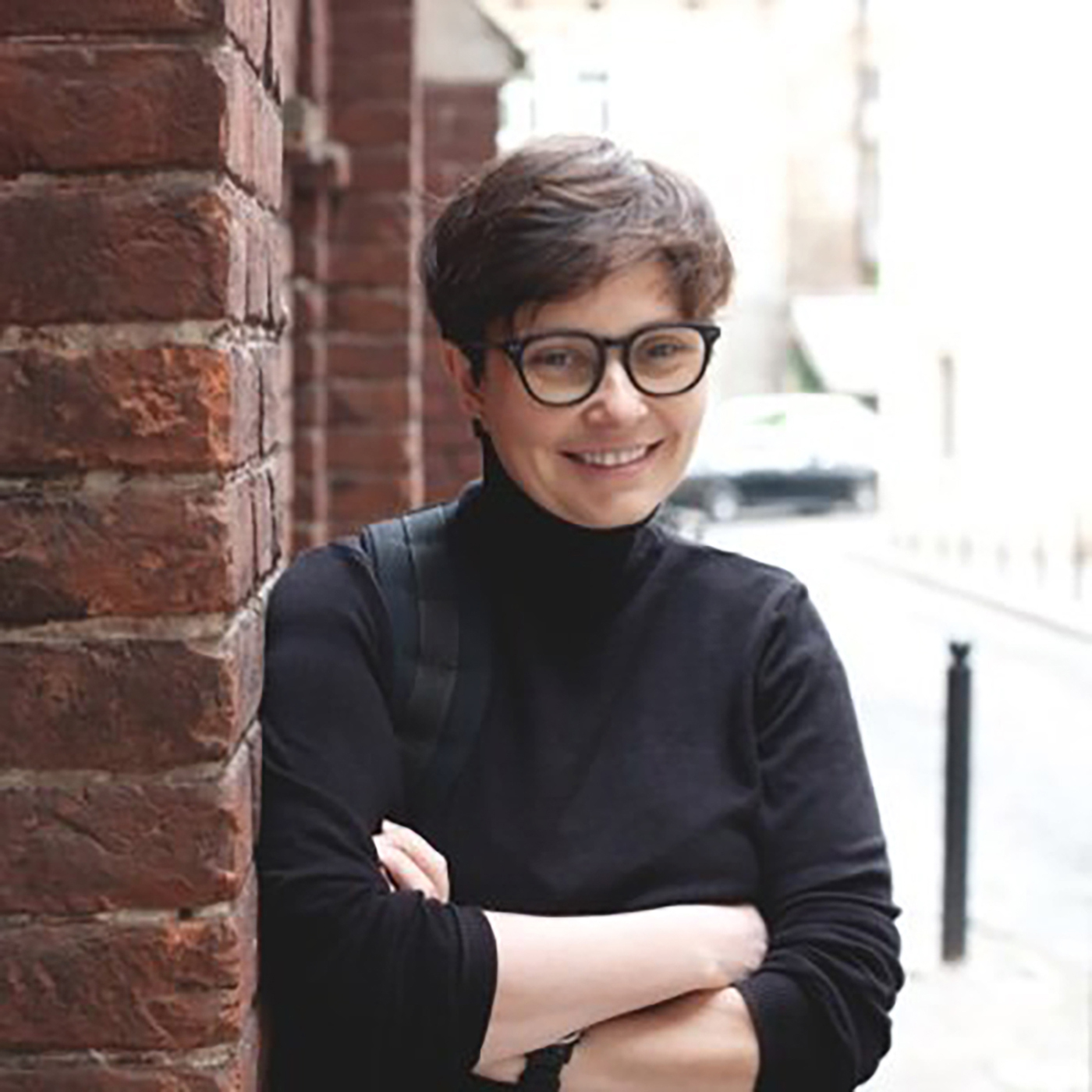 Studio Central and Eastern EuropeOksana Dudko on the War’s Impact on Ukrainian and East European StudiesIn this episode of Studio Central and Eastern Europe, Oksana Dudko discusses how Russia’s full-scale invasion of Ukraine has broadened the field of Ukrainian studies in the West. In conversation with Maryna Shevtsova, a senior FWO postdoctoral researcher in political studies at KU Leuven, they explore how the war has deepened scholarly engagement and encouraged East European Studies to move beyond its long-standing Russia-centric lens.
Oksana Dudko is a historian of 20th-century Europe, specializing in violence, gender, and cultural history in Ukraine and the Soviet Union. She is currently a PhD candidate at the University of To...2025-06-2016 min
Studio Central and Eastern EuropeOksana Dudko on the War’s Impact on Ukrainian and East European StudiesIn this episode of Studio Central and Eastern Europe, Oksana Dudko discusses how Russia’s full-scale invasion of Ukraine has broadened the field of Ukrainian studies in the West. In conversation with Maryna Shevtsova, a senior FWO postdoctoral researcher in political studies at KU Leuven, they explore how the war has deepened scholarly engagement and encouraged East European Studies to move beyond its long-standing Russia-centric lens.
Oksana Dudko is a historian of 20th-century Europe, specializing in violence, gender, and cultural history in Ukraine and the Soviet Union. She is currently a PhD candidate at the University of To...2025-06-2016 min Studio Central and Eastern EuropeBehind the Glitter: Eurovision's Identity CrisisUniting Europe or dividing it? A celebration of LGBTQ+ identity or a stage for homophobia? A voice for peace or a platform for political contestations? In the wake of the latest Eurovision edition, KU Leuven academics Maryna Shevtsova (political science) and Jonas Vanderschueren (cultural studies) reflect on the deepening cracks in Eurovision’s identity. They discuss how the song contest came dangerously close to imploding this year—and how its political values remain strikingly inconsistent and unresolved.
2025-05-2023 min
Studio Central and Eastern EuropeBehind the Glitter: Eurovision's Identity CrisisUniting Europe or dividing it? A celebration of LGBTQ+ identity or a stage for homophobia? A voice for peace or a platform for political contestations? In the wake of the latest Eurovision edition, KU Leuven academics Maryna Shevtsova (political science) and Jonas Vanderschueren (cultural studies) reflect on the deepening cracks in Eurovision’s identity. They discuss how the song contest came dangerously close to imploding this year—and how its political values remain strikingly inconsistent and unresolved.
2025-05-2023 min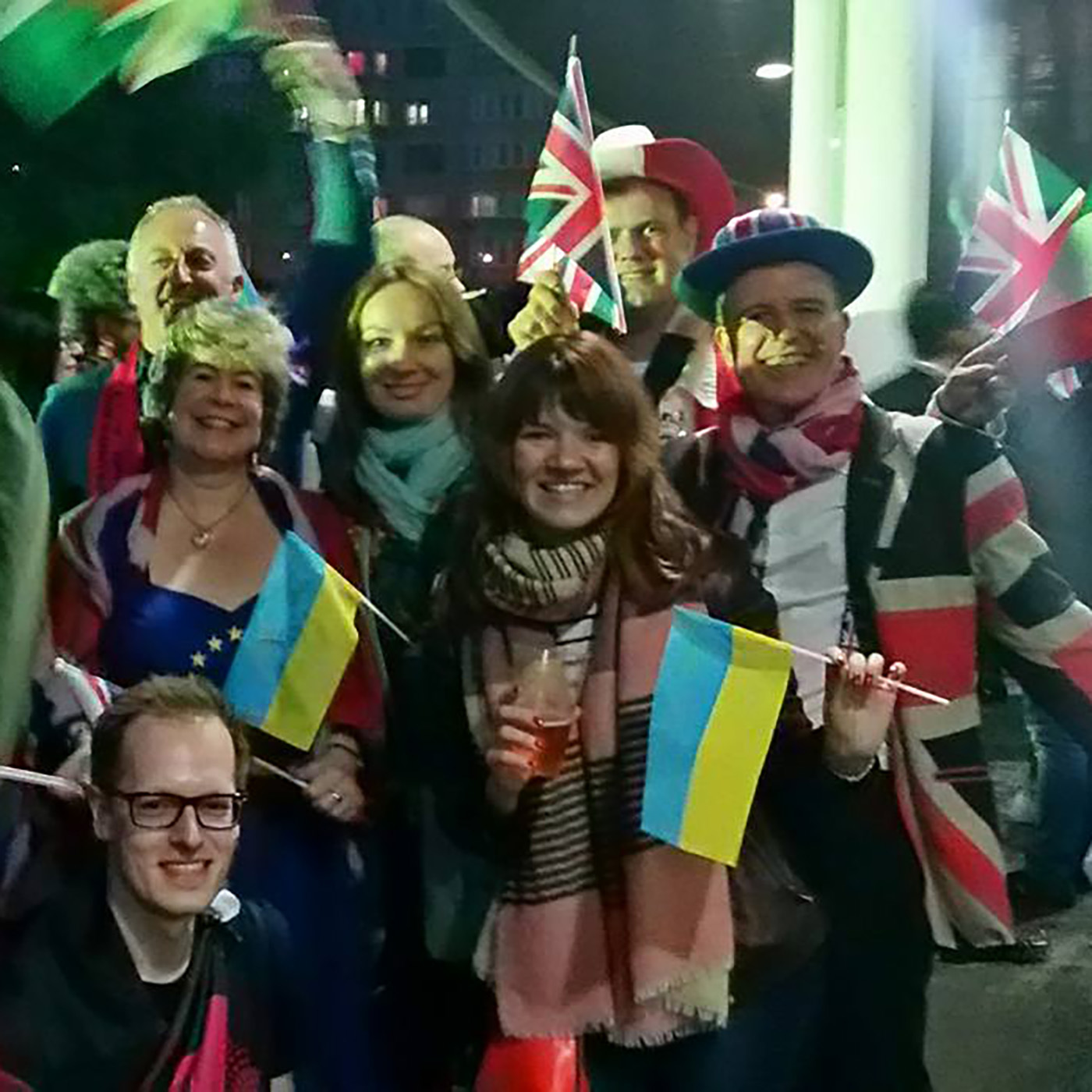 Studio Central and Eastern EuropeCamp Diplomacy: Maryna Shevtsova on the Politics and Power of EurovisionEach May, the dazzling and often divisive Eurovision song contest stirs up a whirlwind of fans, deep emotions, and fierce debates. Ahead of this year’s edition, political scientists Maryna Shevtsova and Peter Vermeersch delve into the social and political undercurrents of Eurovision — and its future.
A lifelong fan with a sharp analytical lens, Maryna reflects on how Eurovision became important to her personally and why it resonates powerfully in Ukraine today, especially in light of the Russian invasion. In a conversation with political scientist Peter Vermeersch, she unpacks the passions the contest evokes, the challenges its fans...2025-05-0921 min
Studio Central and Eastern EuropeCamp Diplomacy: Maryna Shevtsova on the Politics and Power of EurovisionEach May, the dazzling and often divisive Eurovision song contest stirs up a whirlwind of fans, deep emotions, and fierce debates. Ahead of this year’s edition, political scientists Maryna Shevtsova and Peter Vermeersch delve into the social and political undercurrents of Eurovision — and its future.
A lifelong fan with a sharp analytical lens, Maryna reflects on how Eurovision became important to her personally and why it resonates powerfully in Ukraine today, especially in light of the Russian invasion. In a conversation with political scientist Peter Vermeersch, she unpacks the passions the contest evokes, the challenges its fans...2025-05-0921 min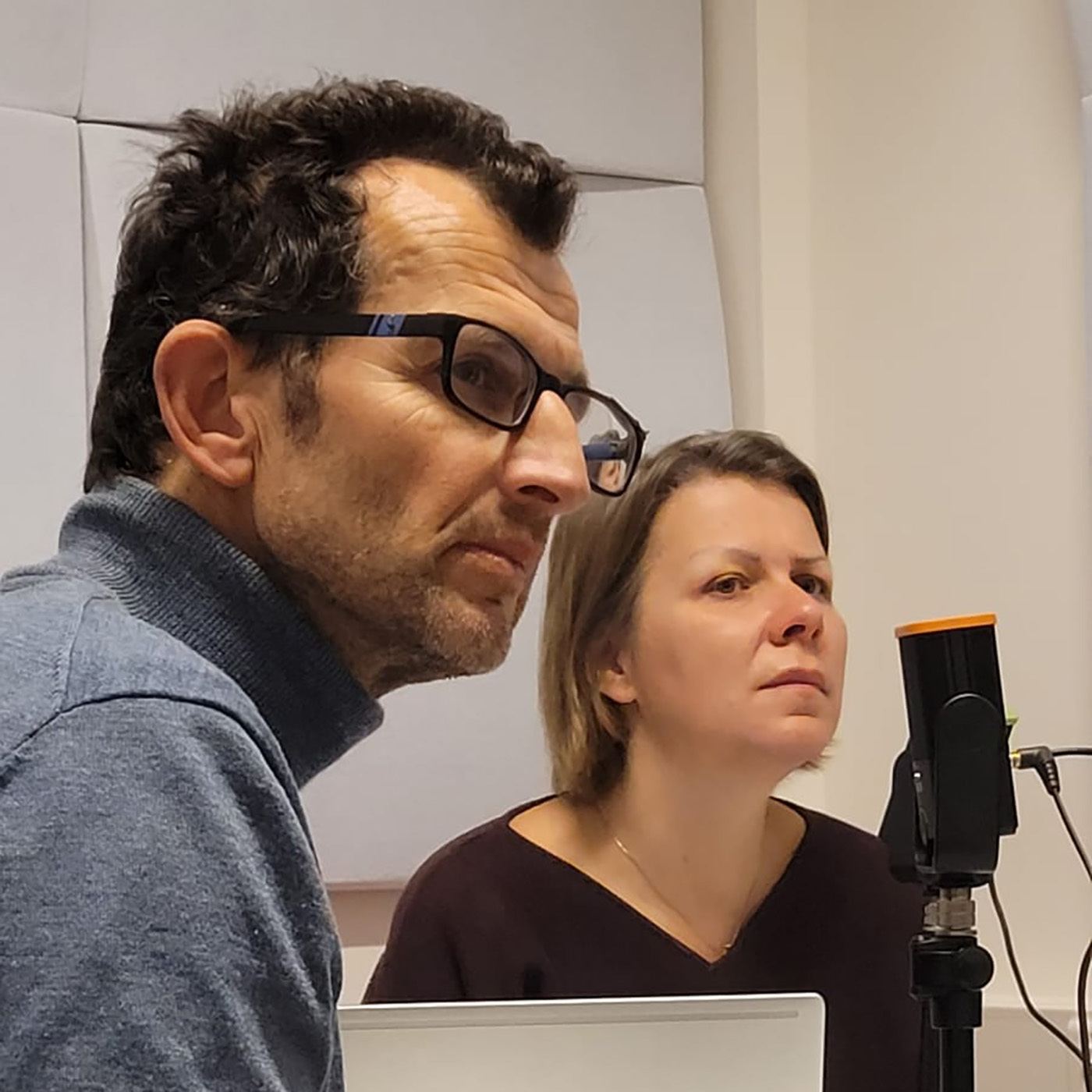 Studio Central and Eastern EuropeEmilia Kledzik on the Appropriation of Papusza’s Voice and the Stereotyping of Romani PoetryIn this episode of Studio Central and Eastern Europe, we dive into the powerful intersection of literature, myth, and minority narratives in postwar Poland. Our guest is Prof. Emilia Kledzik, a literary scholar from Adam Mickiewicz University in Poznań, whose groundbreaking book The Poet’s Perspective: Jerzy Ficowski’s Romani Studies explores the roots of Romani representation in Polish literature and policy.
In conversation with Prof. Kris van Heuckelom (KU Leuven), Kledzik revisits the life and legacy of Papusza—Europe’s most renowned Romani poet—and the role played by Ficowski, her mentor and interpreter, in shaping the discour...2025-04-2521 min
Studio Central and Eastern EuropeEmilia Kledzik on the Appropriation of Papusza’s Voice and the Stereotyping of Romani PoetryIn this episode of Studio Central and Eastern Europe, we dive into the powerful intersection of literature, myth, and minority narratives in postwar Poland. Our guest is Prof. Emilia Kledzik, a literary scholar from Adam Mickiewicz University in Poznań, whose groundbreaking book The Poet’s Perspective: Jerzy Ficowski’s Romani Studies explores the roots of Romani representation in Polish literature and policy.
In conversation with Prof. Kris van Heuckelom (KU Leuven), Kledzik revisits the life and legacy of Papusza—Europe’s most renowned Romani poet—and the role played by Ficowski, her mentor and interpreter, in shaping the discour...2025-04-2521 min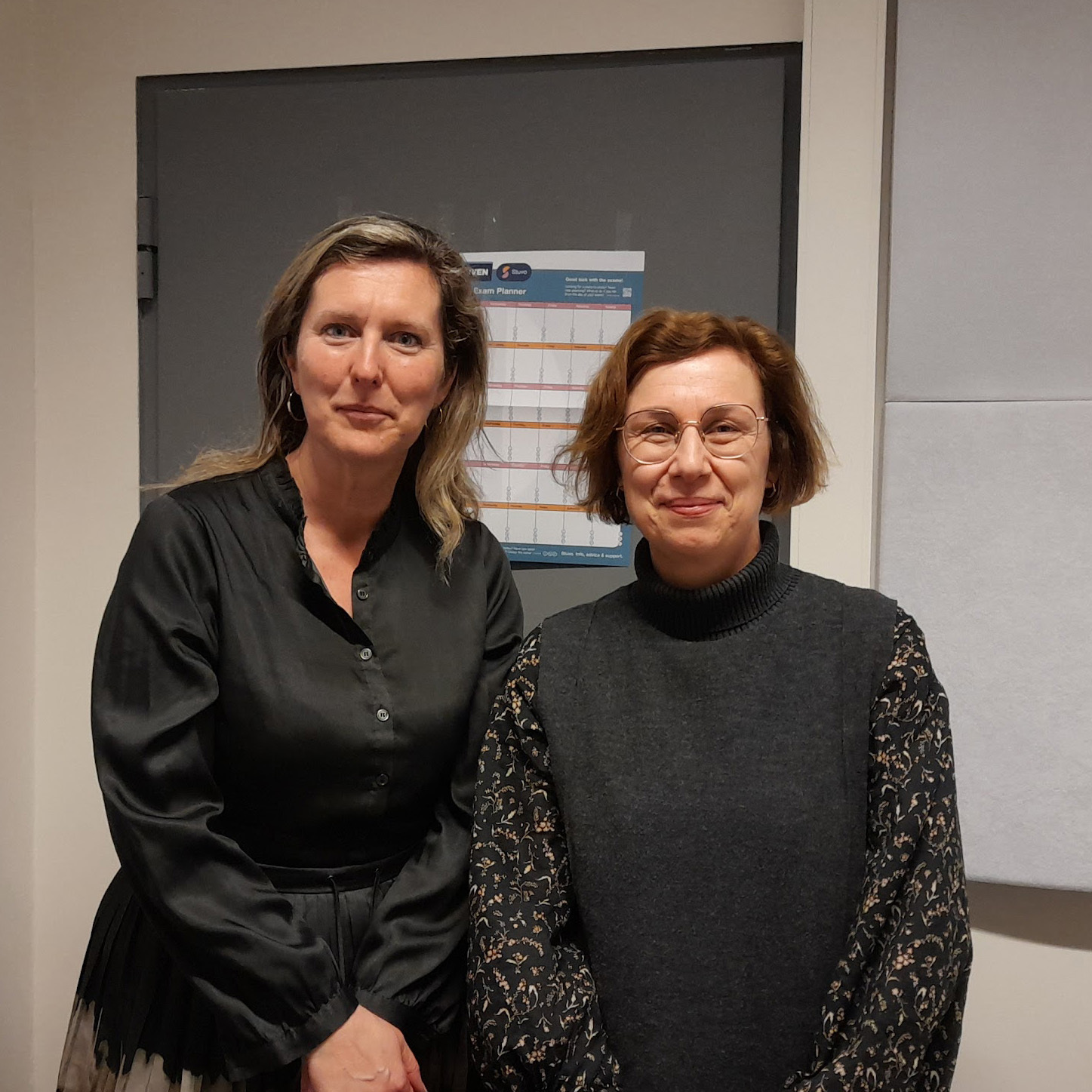 Studio Central and Eastern EuropeRia Laenen Offers a Non-Eurocentric View on the Unraveling World Order and Europe’s Misjudgment of PutinIn this episode, Ria Laenen discusses her recently published and already widely acclaimed book on the history of global politics since World War II, Een heel klein beetje vrede (A Tiny Bit of Peace). She answers questions from Lien Verpoest, professor of the history of international relations at KU Leuven, about whether we are witnessing a major historical shift and when the post-World War II world order began to unravel.
Ria Laenen, a senior lecturer in East European, Eurasian, and international politics at KU Leuven, argues that while Europe spent decades underestimating Russia’s authoritarian leader, Vladimir Pu...2025-03-1820 min
Studio Central and Eastern EuropeRia Laenen Offers a Non-Eurocentric View on the Unraveling World Order and Europe’s Misjudgment of PutinIn this episode, Ria Laenen discusses her recently published and already widely acclaimed book on the history of global politics since World War II, Een heel klein beetje vrede (A Tiny Bit of Peace). She answers questions from Lien Verpoest, professor of the history of international relations at KU Leuven, about whether we are witnessing a major historical shift and when the post-World War II world order began to unravel.
Ria Laenen, a senior lecturer in East European, Eurasian, and international politics at KU Leuven, argues that while Europe spent decades underestimating Russia’s authoritarian leader, Vladimir Pu...2025-03-1820 min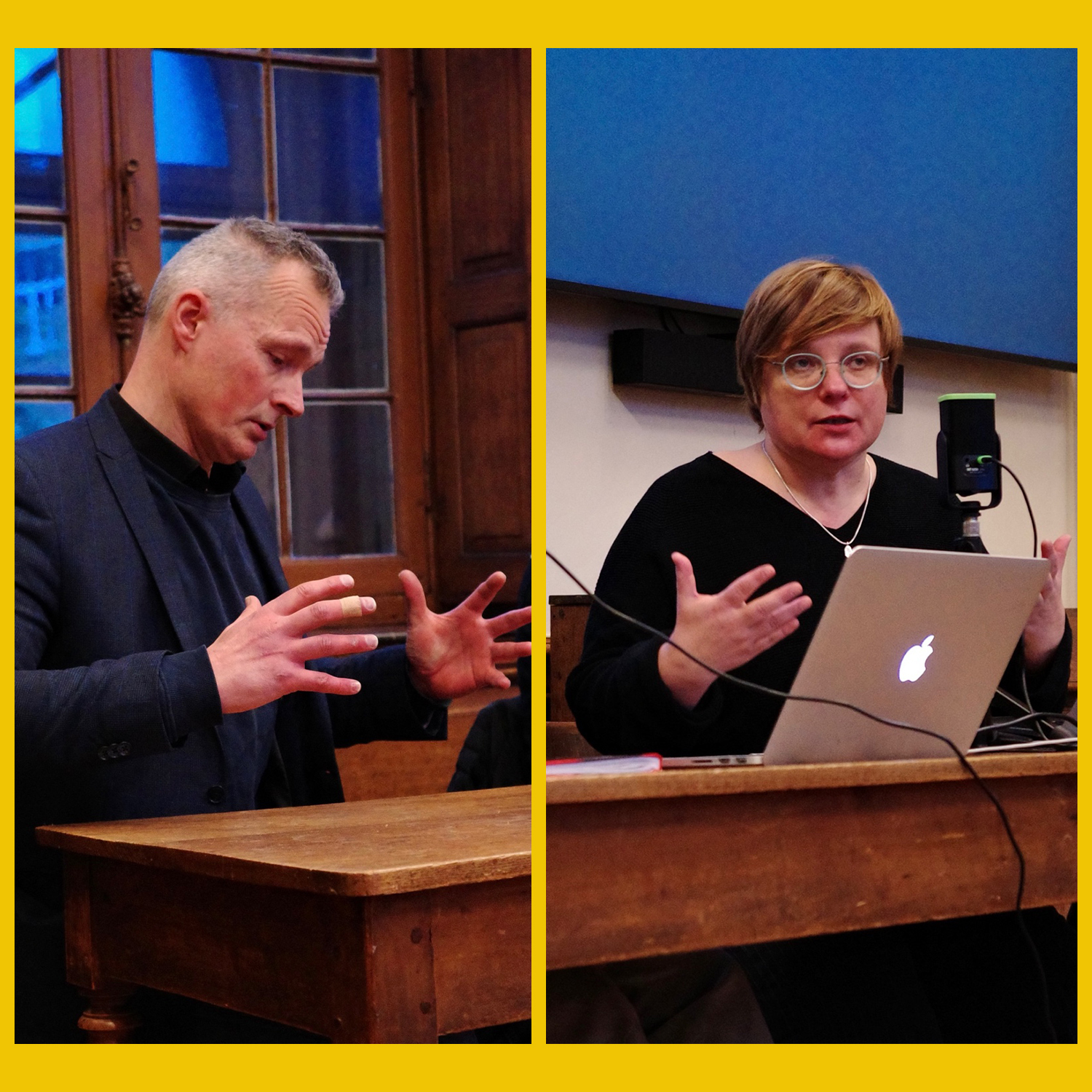 Studio Central and Eastern EuropeThe Revival of Soviet-Era Denunciations in Putin’s Russia and Its Lessons for Contemporary EuropeThis podcast is an edited recording of the conversation, in which we explored the resurgence of Soviet-era citizen denunciations in Vladimir Putin’s Russia, a practice once central to Stalinist repression. Russian anthropologist Alexandra Arkhipova, who both studied and experienced this phenomenon, shared how she was reported to authorities seven times by a stranger and how it took her two years to uncover the person behind the reports. Forced into exile, she discussed the mechanisms driving individuals to collaborate with authoritarian regimes.
Hosted by historian Albena Shkodrova, the discussion also examined how the resurgence of denunciations in Ru...2025-02-2536 min
Studio Central and Eastern EuropeThe Revival of Soviet-Era Denunciations in Putin’s Russia and Its Lessons for Contemporary EuropeThis podcast is an edited recording of the conversation, in which we explored the resurgence of Soviet-era citizen denunciations in Vladimir Putin’s Russia, a practice once central to Stalinist repression. Russian anthropologist Alexandra Arkhipova, who both studied and experienced this phenomenon, shared how she was reported to authorities seven times by a stranger and how it took her two years to uncover the person behind the reports. Forced into exile, she discussed the mechanisms driving individuals to collaborate with authoritarian regimes.
Hosted by historian Albena Shkodrova, the discussion also examined how the resurgence of denunciations in Ru...2025-02-2536 min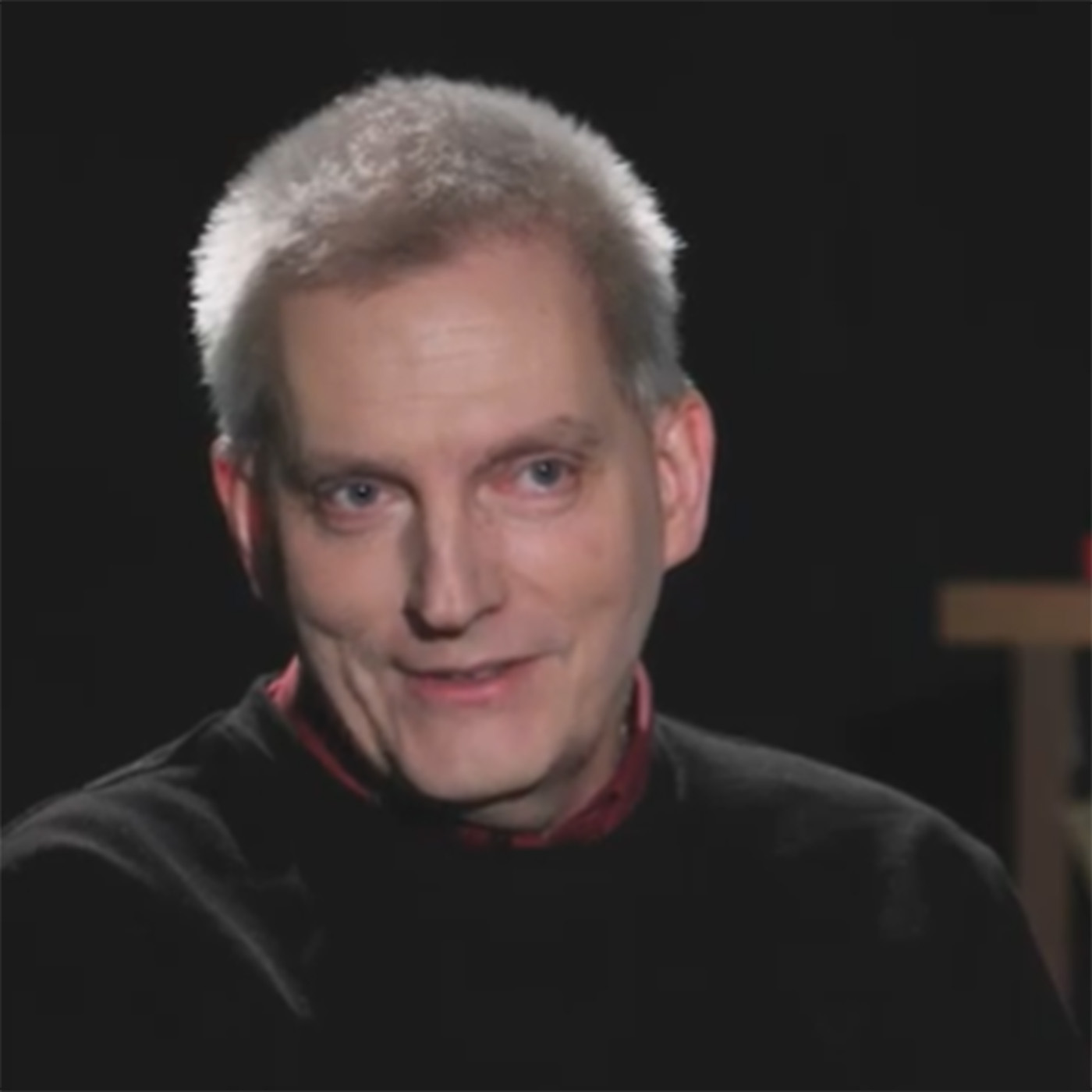 Studio Central and Eastern EuropeOliver Reisner on Stalin, Memory, and Georgian Identity- In this episode of Studio Central and Eastern Europe, Oliver Reisner, a professor of Caucasian studies at Ilia University in Tbilisi, discusses the historical process of national identity construction in Georgia and the challenges Georgians face in reckoning with the memory of Stalin and their communist past.
In his interview with historian Albena Shkodrova, Reisner offers a unique perspective as both a German academic teaching in Tbilisi and a former diplomat who managed a human rights program for World Vision Georgia. He shares his fascinating journey, reflecting on his experiences in the country—one he first fell in...2025-01-3121 min
Studio Central and Eastern EuropeOliver Reisner on Stalin, Memory, and Georgian Identity- In this episode of Studio Central and Eastern Europe, Oliver Reisner, a professor of Caucasian studies at Ilia University in Tbilisi, discusses the historical process of national identity construction in Georgia and the challenges Georgians face in reckoning with the memory of Stalin and their communist past.
In his interview with historian Albena Shkodrova, Reisner offers a unique perspective as both a German academic teaching in Tbilisi and a former diplomat who managed a human rights program for World Vision Georgia. He shares his fascinating journey, reflecting on his experiences in the country—one he first fell in...2025-01-3121 min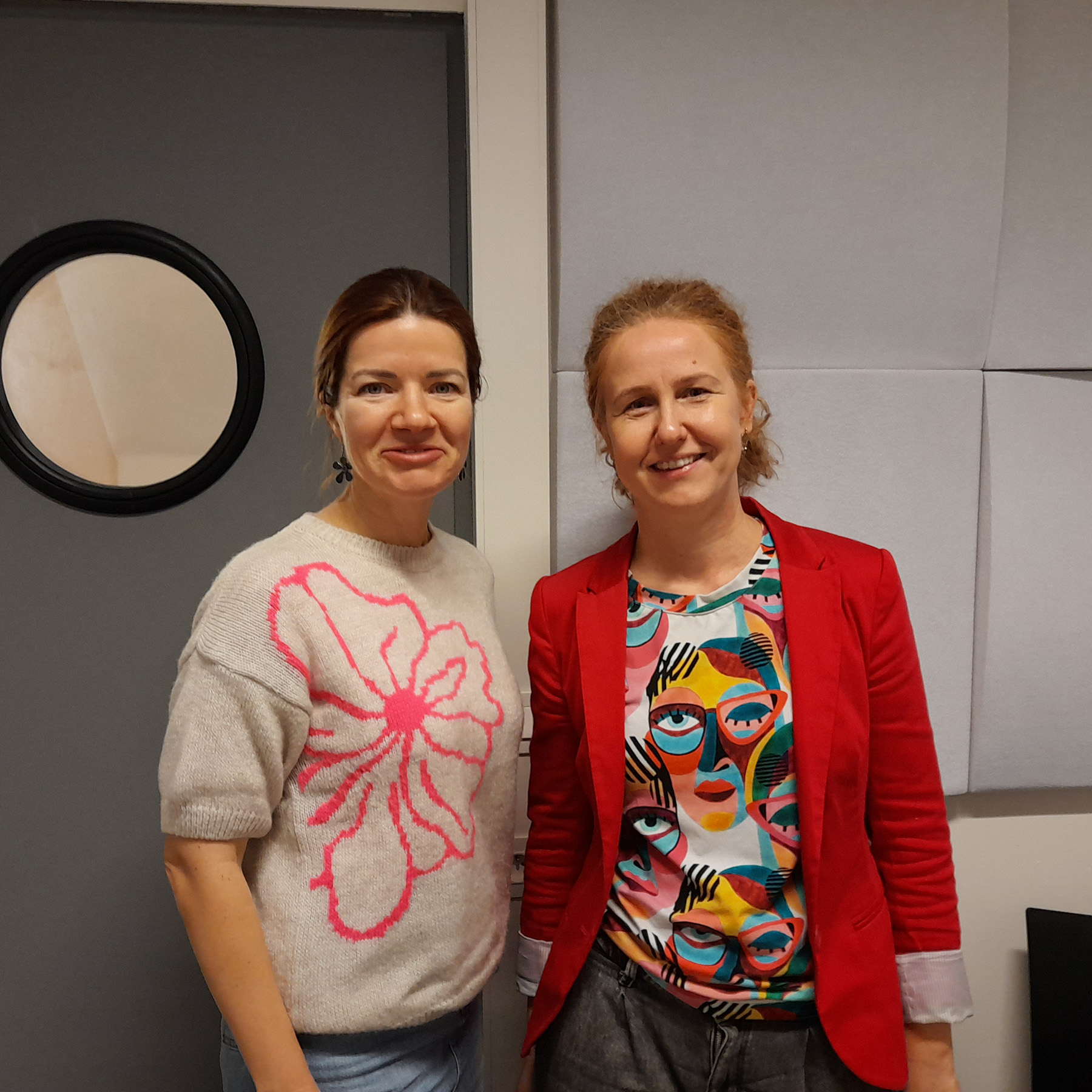 Studio Central and Eastern EuropeGuardians of Heritage: Elzbieta Olzacka on Protecting Ukraine's Cultural Legacy During WarJoin us for a compelling conversation with Dr. Elżbieta Olzacka, Assistant Professor at the Jagiellonian University in Krakow, as she sheds light on the emotional and challenging experiences of museum workers striving to safeguard Ukraine’s cultural heritage amidst the ravages of war.
In this episode of Studio Central and Eastern Europe, Dr. Olzacka speaks with Dr. Maryna Shevtsova of KU Leuven of how these efforts resonate beyond Ukraine, offering lessons Europe can learn from. This conversation explores the resilience of cultural mobilization in the face of conflict and the broader implications for cultural policy across Eur...2025-01-1419 min
Studio Central and Eastern EuropeGuardians of Heritage: Elzbieta Olzacka on Protecting Ukraine's Cultural Legacy During WarJoin us for a compelling conversation with Dr. Elżbieta Olzacka, Assistant Professor at the Jagiellonian University in Krakow, as she sheds light on the emotional and challenging experiences of museum workers striving to safeguard Ukraine’s cultural heritage amidst the ravages of war.
In this episode of Studio Central and Eastern Europe, Dr. Olzacka speaks with Dr. Maryna Shevtsova of KU Leuven of how these efforts resonate beyond Ukraine, offering lessons Europe can learn from. This conversation explores the resilience of cultural mobilization in the face of conflict and the broader implications for cultural policy across Eur...2025-01-1419 min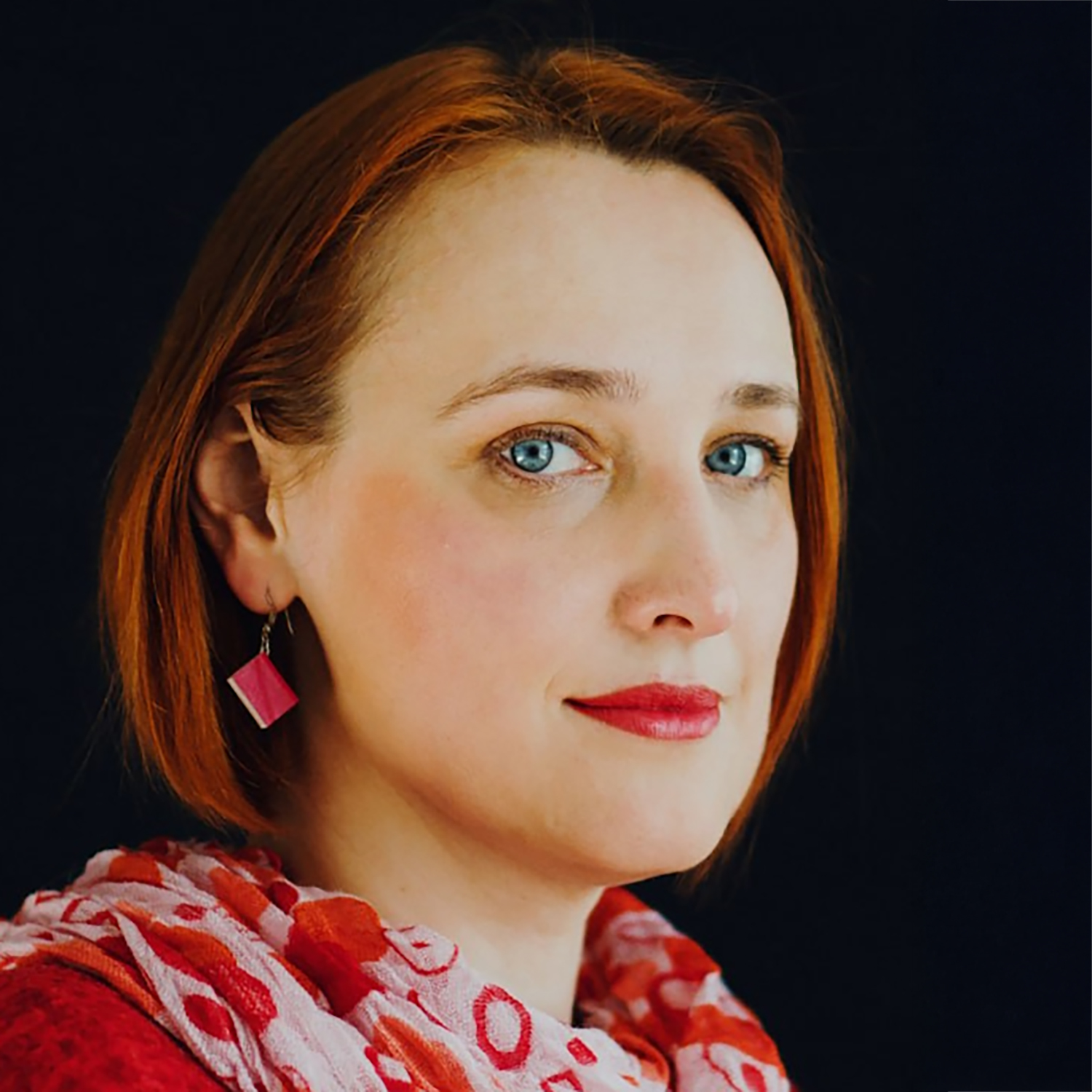 Studio Central and Eastern EuropeKateryna Dysa on Witch Trials, Imperial Narratives, and Kyiv in Western EyesWere witches in medieval Ukraine prosecuted in the same way as in Western Europe? How did Russian imperial interests shape Kyiv’s international image between the late eighteenth and the early twentieth century, and did Western travelers accept or challenge these portrayals of the city?
In this episode of Studio Central Europe, Kateryna Dysa, a historian and associate professor in the History Department of the National University of "Kyiv-Mohyla Academy," discusses her research with Jonas Vanderschueren, host and postdoctoral researcher in Cultural Studies at KU Leuven.
Dr. Dysa participates in the project HER-UKR: Challenges and oppor...2024-12-0516 min
Studio Central and Eastern EuropeKateryna Dysa on Witch Trials, Imperial Narratives, and Kyiv in Western EyesWere witches in medieval Ukraine prosecuted in the same way as in Western Europe? How did Russian imperial interests shape Kyiv’s international image between the late eighteenth and the early twentieth century, and did Western travelers accept or challenge these portrayals of the city?
In this episode of Studio Central Europe, Kateryna Dysa, a historian and associate professor in the History Department of the National University of "Kyiv-Mohyla Academy," discusses her research with Jonas Vanderschueren, host and postdoctoral researcher in Cultural Studies at KU Leuven.
Dr. Dysa participates in the project HER-UKR: Challenges and oppor...2024-12-0516 min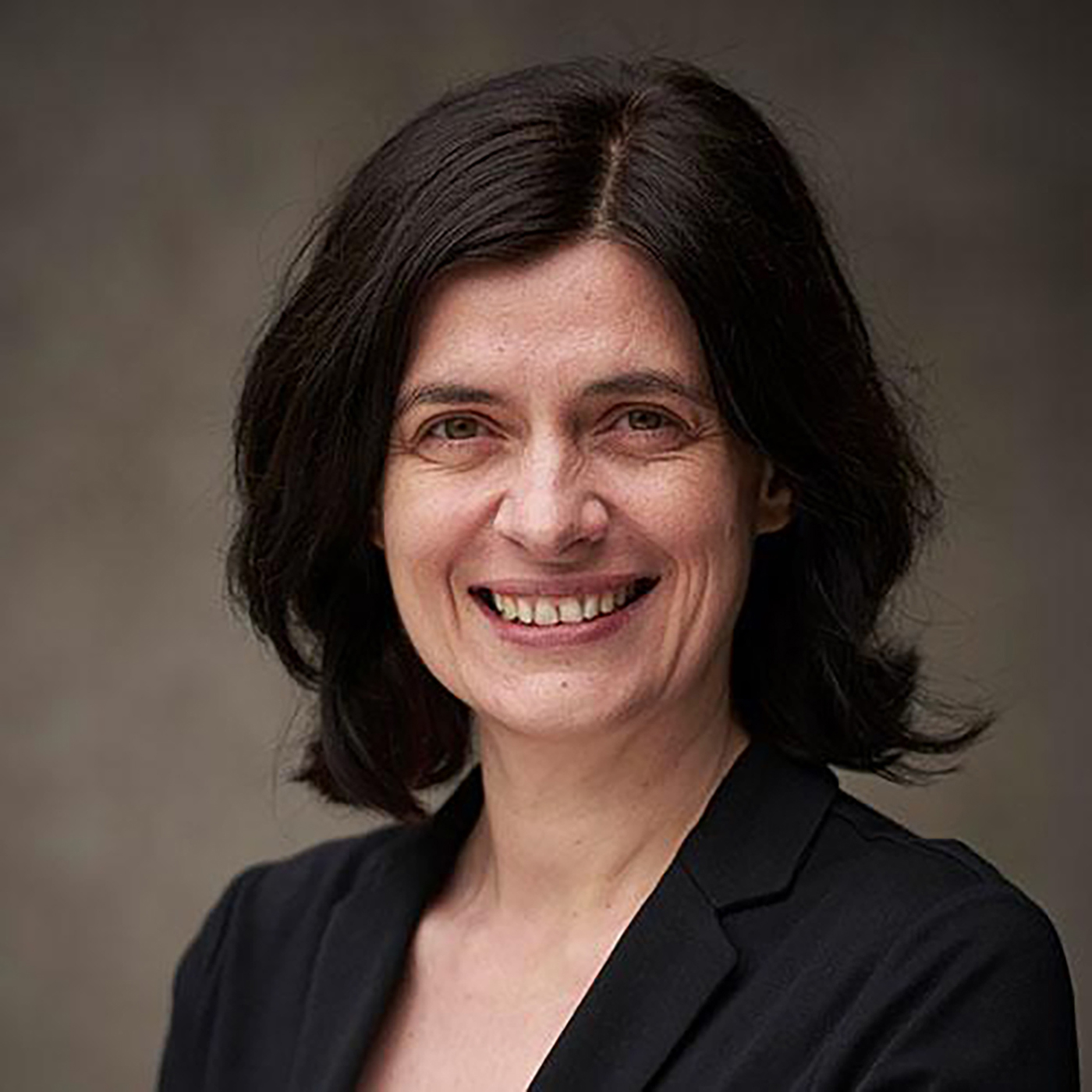 Studio Central and Eastern EuropeKetevan Gurchiani: How urban infrastructure reflects belief systems and the Soviet Legacy in Georgian Religious PracticesIn this podcast, Albena Shkodrova, a historian at KU Leuven, speaks with Ketevan Gurchiani, a Georgian anthropologist from Ilia University in Tbilisi, about the concept of the city as an urban assemblage. Gurchiani shares her research insights into how the Soviet-era legacy of "camouflaging" and "doing as if" shapes contemporary religious practices in Georgia, fostering a perception of religious rules as flexible.
She also explores the complex entanglements between urban infrastructure, nature, and belief systems. Referring to the devastating 2015 flooding of the Vere River, Gurchiani recounts how the disaster raised ecological concerns alongside theological interpretations. Some viewed the...2024-11-2920 min
Studio Central and Eastern EuropeKetevan Gurchiani: How urban infrastructure reflects belief systems and the Soviet Legacy in Georgian Religious PracticesIn this podcast, Albena Shkodrova, a historian at KU Leuven, speaks with Ketevan Gurchiani, a Georgian anthropologist from Ilia University in Tbilisi, about the concept of the city as an urban assemblage. Gurchiani shares her research insights into how the Soviet-era legacy of "camouflaging" and "doing as if" shapes contemporary religious practices in Georgia, fostering a perception of religious rules as flexible.
She also explores the complex entanglements between urban infrastructure, nature, and belief systems. Referring to the devastating 2015 flooding of the Vere River, Gurchiani recounts how the disaster raised ecological concerns alongside theological interpretations. Some viewed the...2024-11-2920 min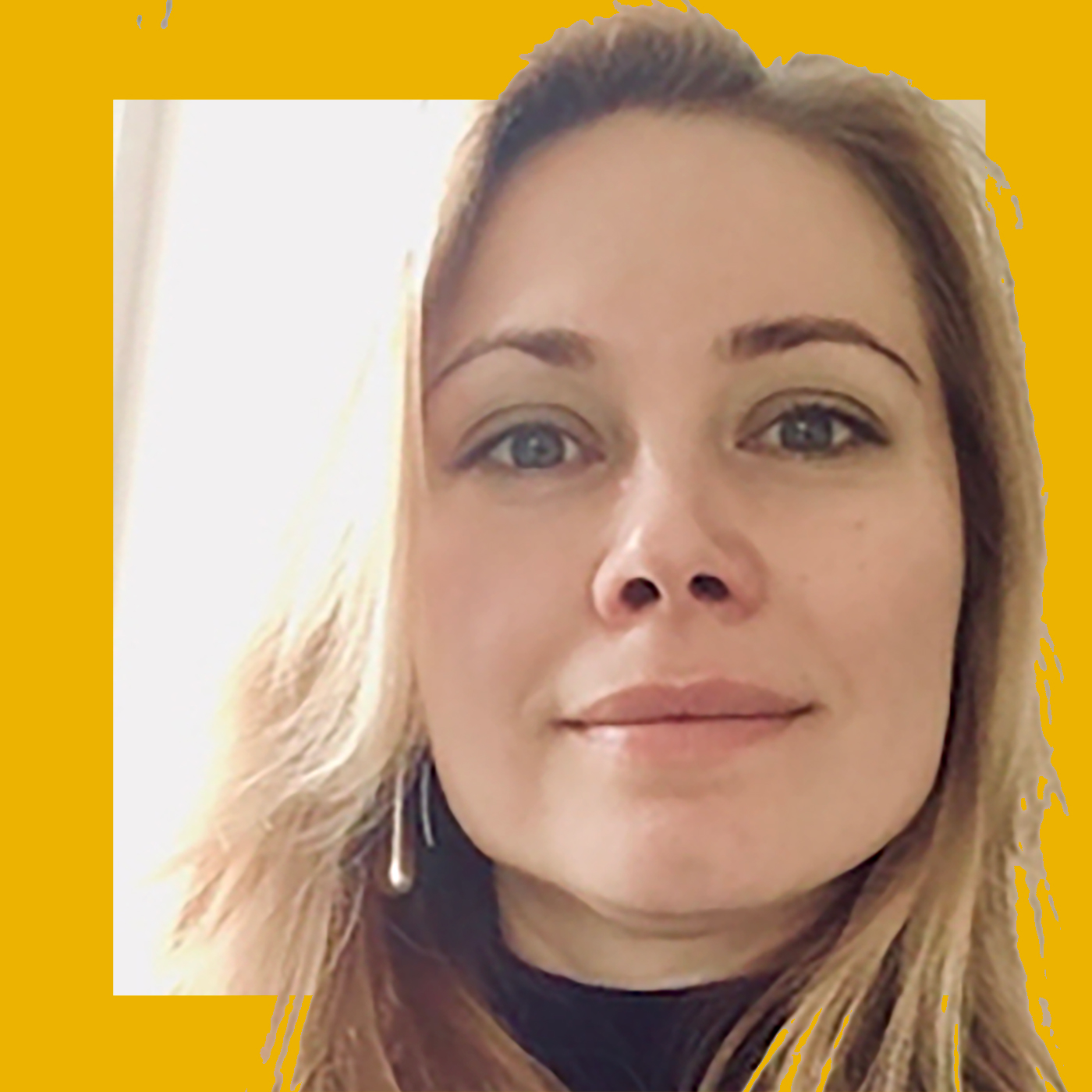 Studio Central and Eastern EuropeMonumental Choices: Memory, Security, and Community in EstoniaIn this episode, host Maryna Shevtsova, senior FWO researcher at KU Leuven, sits down with Alexandra Yatsyk, a researcher at the University of Lille, to explore the complex intersections of history, identity, and politics in Estonia’s public spaces.
Since the start of Russia's war in Ukraine in 2022, Soviet-era monuments in Estonia have come under renewed scrutiny, sparking heated debates and media interest in both Estonian and Russian-speaking communities. Alexandra Yatsyk delves into the concept of mnemonic security—how collective memory and symbols like monuments are used to preserve identity and social cohesion in times of uncertainty.
The...2024-11-2219 min
Studio Central and Eastern EuropeMonumental Choices: Memory, Security, and Community in EstoniaIn this episode, host Maryna Shevtsova, senior FWO researcher at KU Leuven, sits down with Alexandra Yatsyk, a researcher at the University of Lille, to explore the complex intersections of history, identity, and politics in Estonia’s public spaces.
Since the start of Russia's war in Ukraine in 2022, Soviet-era monuments in Estonia have come under renewed scrutiny, sparking heated debates and media interest in both Estonian and Russian-speaking communities. Alexandra Yatsyk delves into the concept of mnemonic security—how collective memory and symbols like monuments are used to preserve identity and social cohesion in times of uncertainty.
The...2024-11-2219 min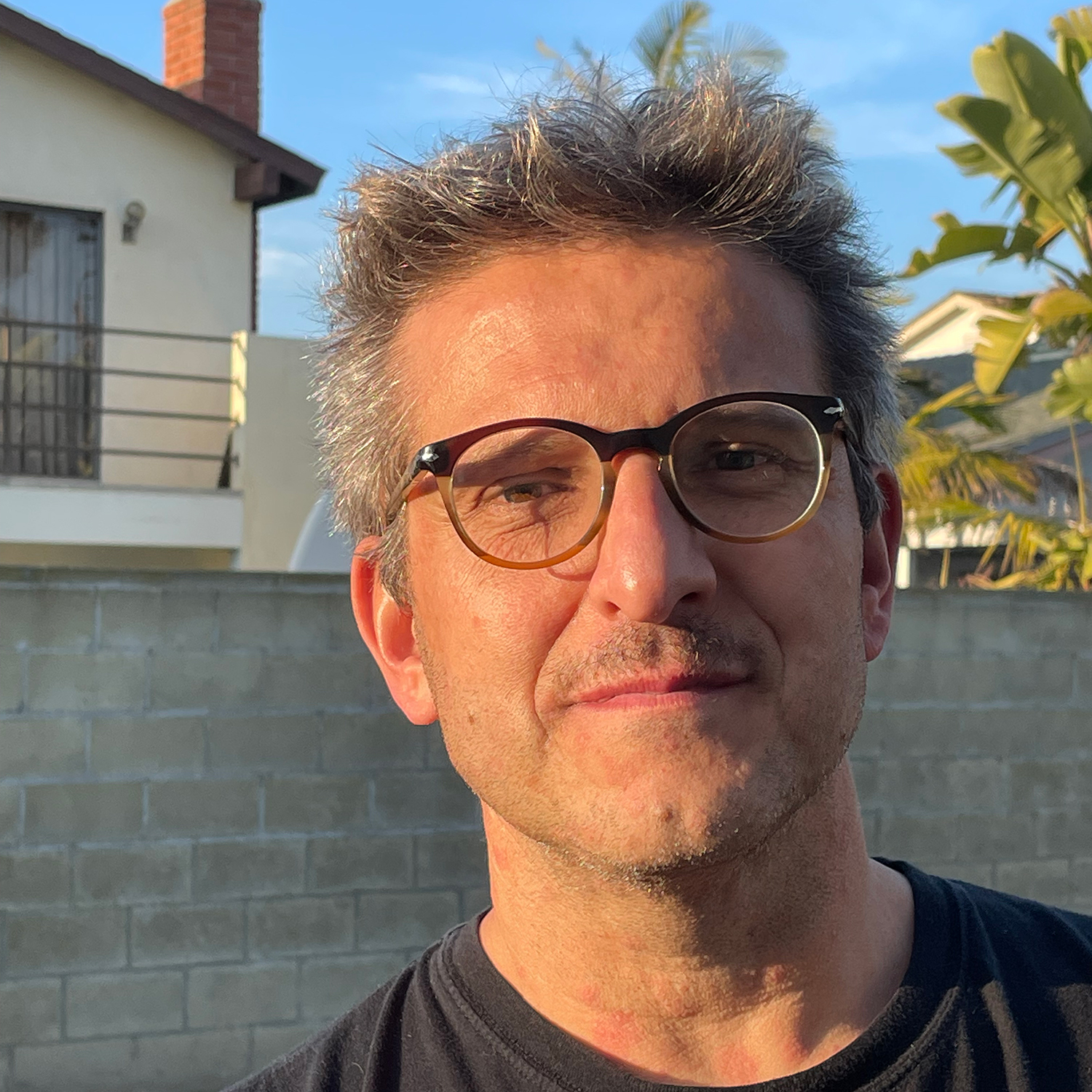 Studio Central and Eastern EuropeAfter the After: (Re)imagining Holocaust Testimonies as PoetryThis podcast features a lecture by Piotr Florczyk, poet, essayist, translator, and professor at the University of Washington in Seattle, on the poetry of witness. This form of poetic expression testifies to extreme historical and social events—war, political persecution, exile, and even the horrors of torture and censorship.
In his talk, delivered last week in Antwerp, Florczyk explored the unique burden of the twentieth century, a time marked by unimaginable atrocities. As the number of survivors from its darkest moments, including the Holocaust, continues to dwindle, the risk of these events fading from collective memory grows. Fl...2024-11-2140 min
Studio Central and Eastern EuropeAfter the After: (Re)imagining Holocaust Testimonies as PoetryThis podcast features a lecture by Piotr Florczyk, poet, essayist, translator, and professor at the University of Washington in Seattle, on the poetry of witness. This form of poetic expression testifies to extreme historical and social events—war, political persecution, exile, and even the horrors of torture and censorship.
In his talk, delivered last week in Antwerp, Florczyk explored the unique burden of the twentieth century, a time marked by unimaginable atrocities. As the number of survivors from its darkest moments, including the Holocaust, continues to dwindle, the risk of these events fading from collective memory grows. Fl...2024-11-2140 min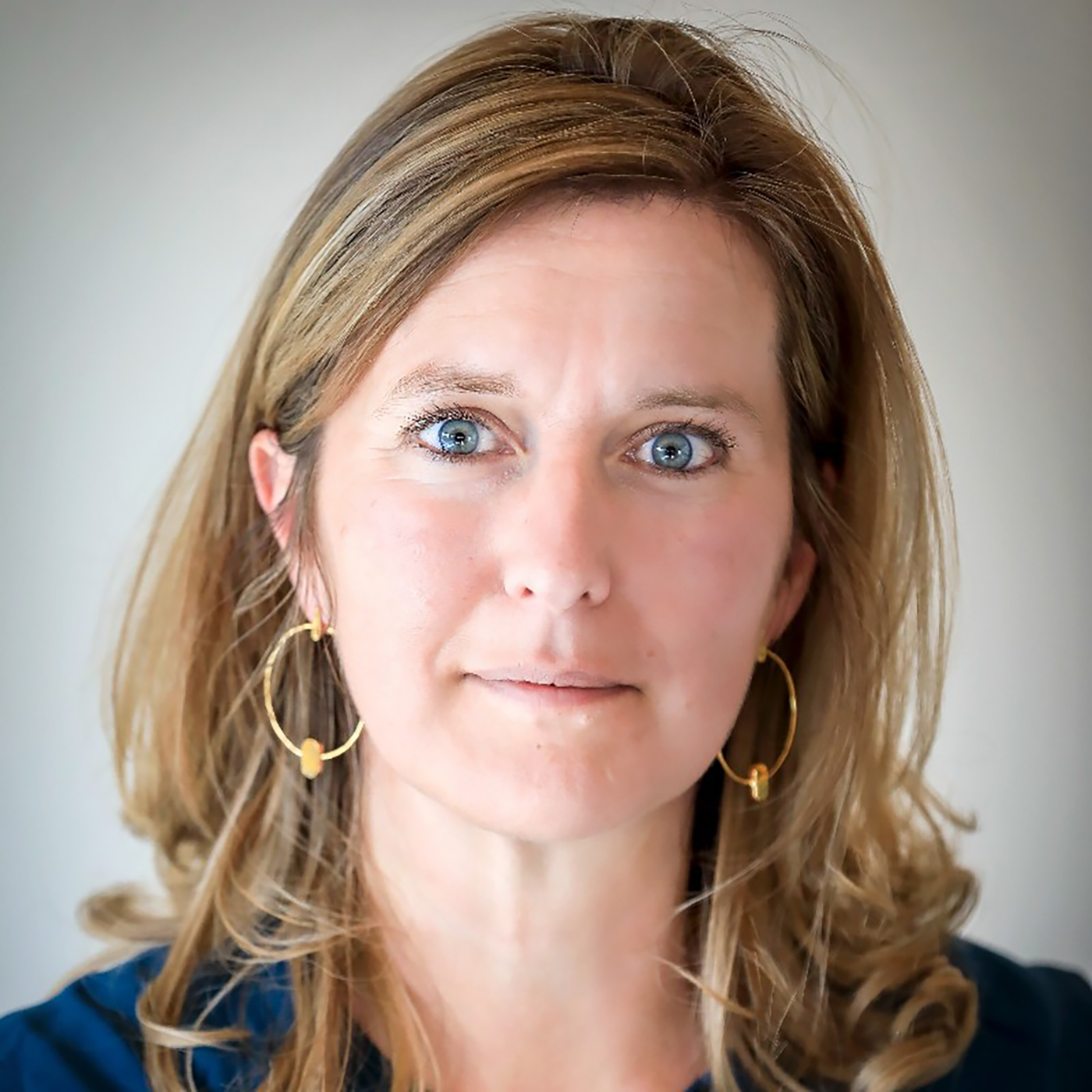 Studio Central and Eastern EuropeLien Verpoest on how Russia's war in Ukraine raises the significance of heritage, fuelling both its destruction and reconstructionIn this episode, Lien Verpoest, professor of Eastern European and diplomatic history at KU Leuven, examines why heritage has become a central issue in Russia's ongoing war in Ukraine. This topic recently took center stage at an international conference in Leuven, where representatives from 15 universities worldwide gathered to discuss EU heritage diplomacy in the war-torn region. In conversation with Peter Vermeersch, professor of political studies at KU Leuven, Verpoest explores the heritage disputes between Russia and Ukraine, highlighting the countries' contrasting views on Ukraine’s colonial and communist past. She also discusses how contested historical and identity narratives are dr...2024-11-1420 min
Studio Central and Eastern EuropeLien Verpoest on how Russia's war in Ukraine raises the significance of heritage, fuelling both its destruction and reconstructionIn this episode, Lien Verpoest, professor of Eastern European and diplomatic history at KU Leuven, examines why heritage has become a central issue in Russia's ongoing war in Ukraine. This topic recently took center stage at an international conference in Leuven, where representatives from 15 universities worldwide gathered to discuss EU heritage diplomacy in the war-torn region. In conversation with Peter Vermeersch, professor of political studies at KU Leuven, Verpoest explores the heritage disputes between Russia and Ukraine, highlighting the countries' contrasting views on Ukraine’s colonial and communist past. She also discusses how contested historical and identity narratives are dr...2024-11-1420 min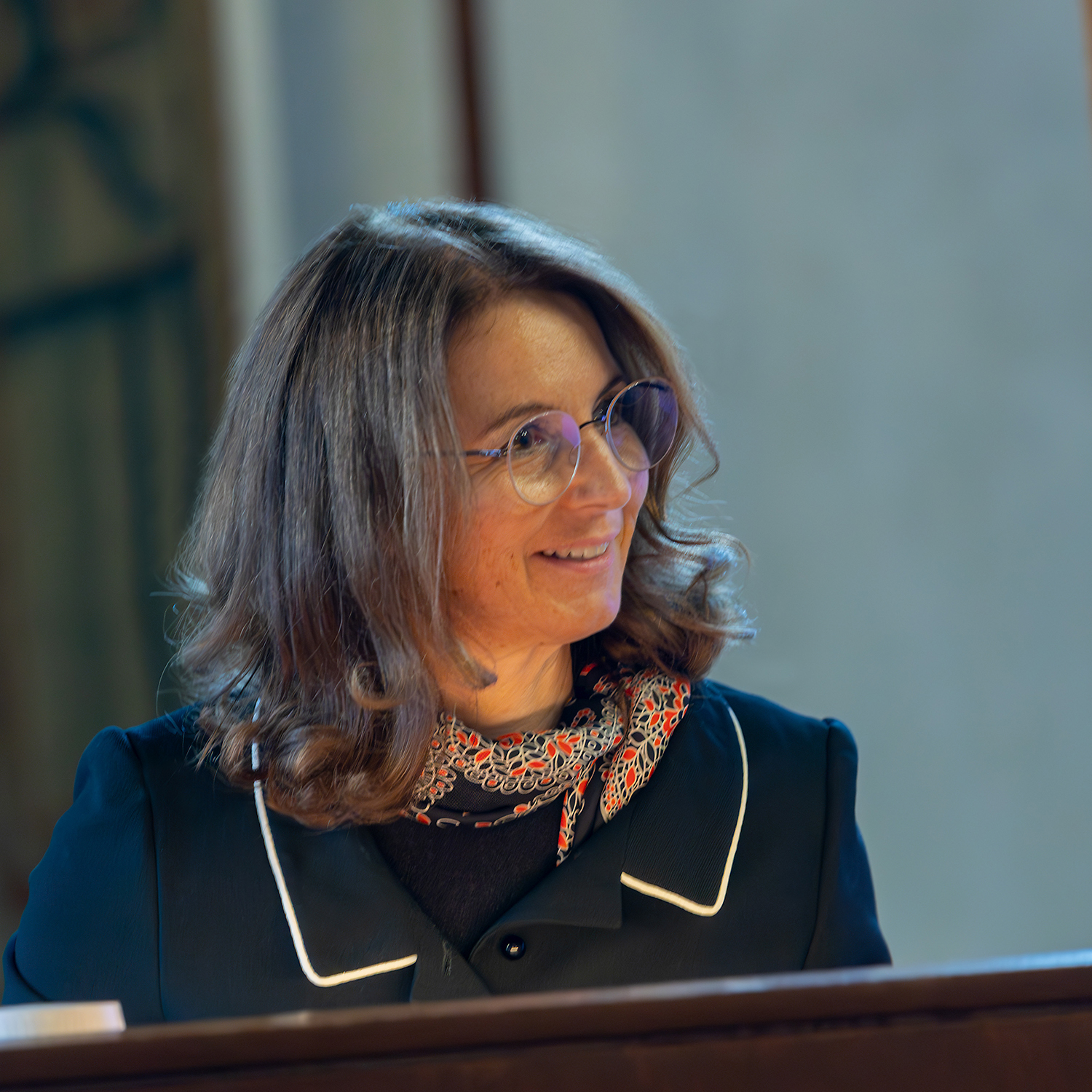 Studio Central and Eastern EuropeMirja Lecke on Russian Imperial Literature, Odesa’s Cosmopolitan Legacy, and Regensburg’s Unique Slavic and East European Studies ProgramIn this episode, Kris Van Heuckelom, Professor at KU Leuven, interviews Mirja Lecke, Chair of Slavic Literatures and Cultures at the University of Regensburg in Germany. They discuss Russian imperial literature’s portrayal of colonized territories like Poland, Lithuania, Belarus, and Ukraine—called "Western territories" to obscure their non-Russian identities. Lecke speaks of the historical evolution of Odessa’s cosmopolitan character, and the unique approach of Regensburg’s Slavic and East European Studies program, which embraces the diversity of the entire region rather than focusing solely on Russia.
Mirja Lecke participates in the project HER-UKR: Challenges and opportun...2024-11-0819 min
Studio Central and Eastern EuropeMirja Lecke on Russian Imperial Literature, Odesa’s Cosmopolitan Legacy, and Regensburg’s Unique Slavic and East European Studies ProgramIn this episode, Kris Van Heuckelom, Professor at KU Leuven, interviews Mirja Lecke, Chair of Slavic Literatures and Cultures at the University of Regensburg in Germany. They discuss Russian imperial literature’s portrayal of colonized territories like Poland, Lithuania, Belarus, and Ukraine—called "Western territories" to obscure their non-Russian identities. Lecke speaks of the historical evolution of Odessa’s cosmopolitan character, and the unique approach of Regensburg’s Slavic and East European Studies program, which embraces the diversity of the entire region rather than focusing solely on Russia.
Mirja Lecke participates in the project HER-UKR: Challenges and opportun...2024-11-0819 min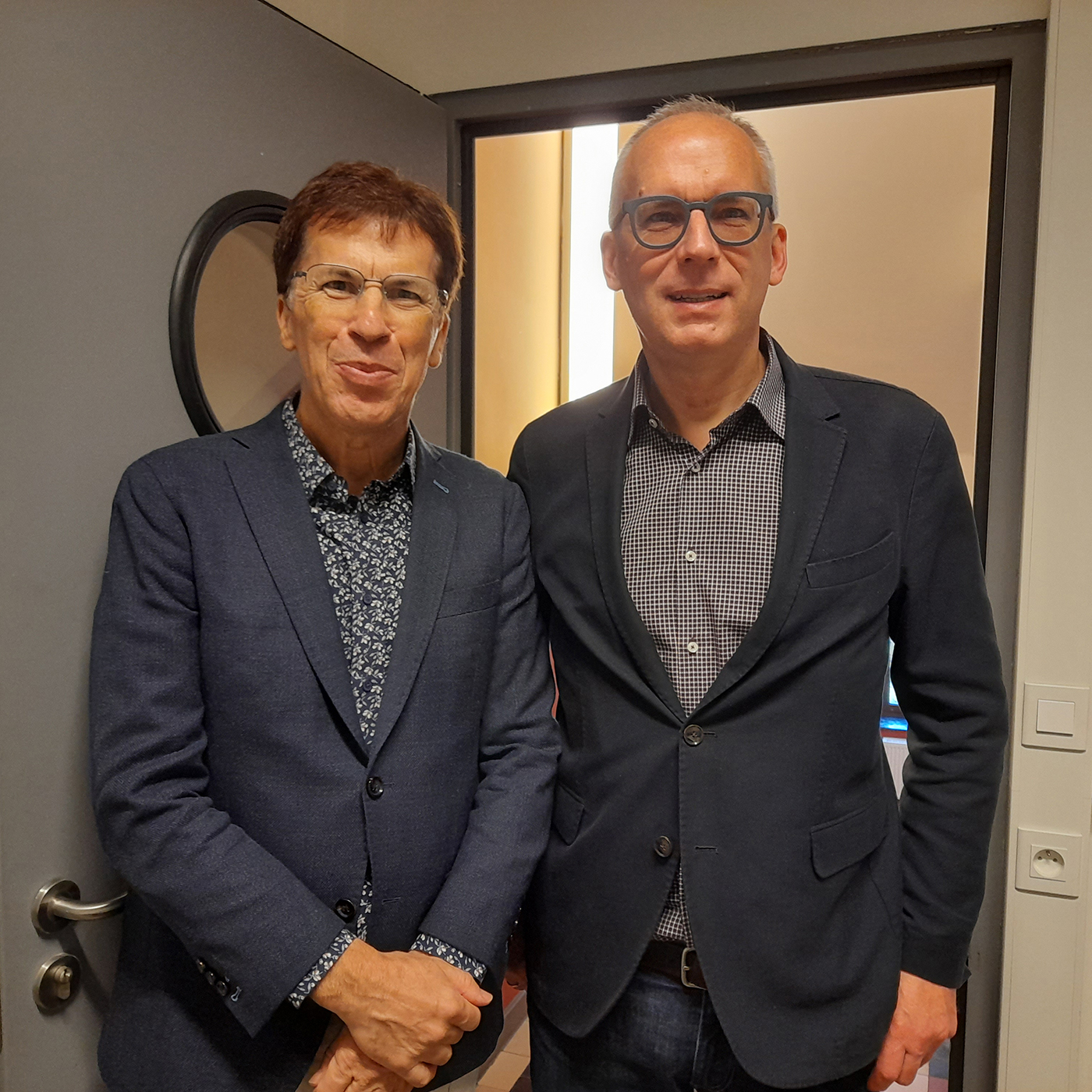 Studio Central and Eastern EuropeA War for Europe’s Soul: Revisiting Carl Schmitt in the Age of UkraineStefan Auer, Professor of European Studies at the University of Hong Kong, and Martin Kohlrausch, Professor of European Political History at KU Leuven, discuss the systemic obstacles that prevent the European Union from responding effectively to the war in Ukraine. In this intriguing, if not entirely optimistic conversation, the two academics examine why the EU's technocratic approach falls short in times of war. They also ponder whether liberal Europe can still learn from the "dangerous mind" of Carl Schmitt—a brilliant, if morally compromised, political philosopher who aligned himself with Hitler's Nazi ideology but left behind a body of sh...2024-10-3122 min
Studio Central and Eastern EuropeA War for Europe’s Soul: Revisiting Carl Schmitt in the Age of UkraineStefan Auer, Professor of European Studies at the University of Hong Kong, and Martin Kohlrausch, Professor of European Political History at KU Leuven, discuss the systemic obstacles that prevent the European Union from responding effectively to the war in Ukraine. In this intriguing, if not entirely optimistic conversation, the two academics examine why the EU's technocratic approach falls short in times of war. They also ponder whether liberal Europe can still learn from the "dangerous mind" of Carl Schmitt—a brilliant, if morally compromised, political philosopher who aligned himself with Hitler's Nazi ideology but left behind a body of sh...2024-10-3122 min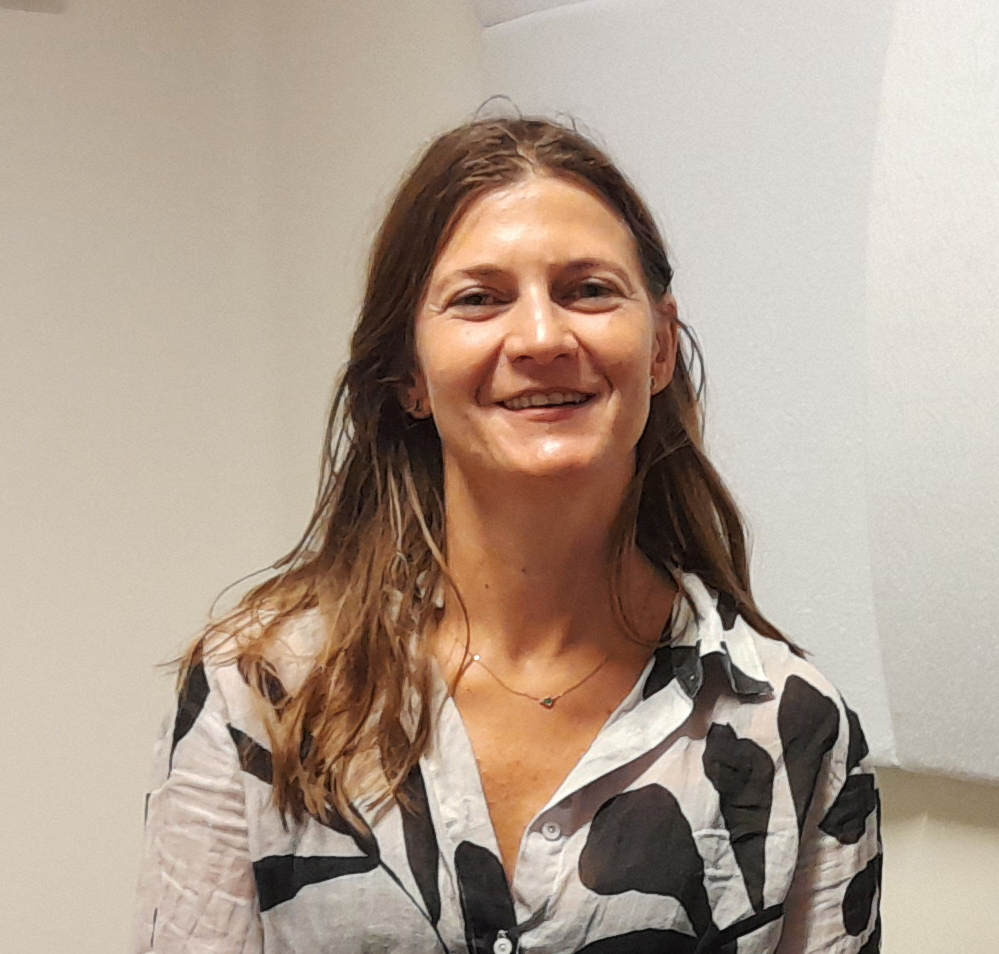 Studio Central and Eastern EuropeMałgorzata Jędrzejczyk on Poland's Avant-Garde and its Place in 20th-Century EuropeArt historian and curator Małgorzata Jędrzejczyk delves into the lesser-known history of the Polish avant-garde in a conversation with Martin Kohlrausch, professor of Modern European Political History at KU Leuven. Together, they explore how Poland's intellectual and artistic elite perceived their place on the European map during the 20th century. Their discussion touches on the vibrant exchange of ideas among the interwar avant-garde, while also examining the enduring notion of cultural borders separating East and West.
2024-10-228h 00
Studio Central and Eastern EuropeMałgorzata Jędrzejczyk on Poland's Avant-Garde and its Place in 20th-Century EuropeArt historian and curator Małgorzata Jędrzejczyk delves into the lesser-known history of the Polish avant-garde in a conversation with Martin Kohlrausch, professor of Modern European Political History at KU Leuven. Together, they explore how Poland's intellectual and artistic elite perceived their place on the European map during the 20th century. Their discussion touches on the vibrant exchange of ideas among the interwar avant-garde, while also examining the enduring notion of cultural borders separating East and West.
2024-10-228h 00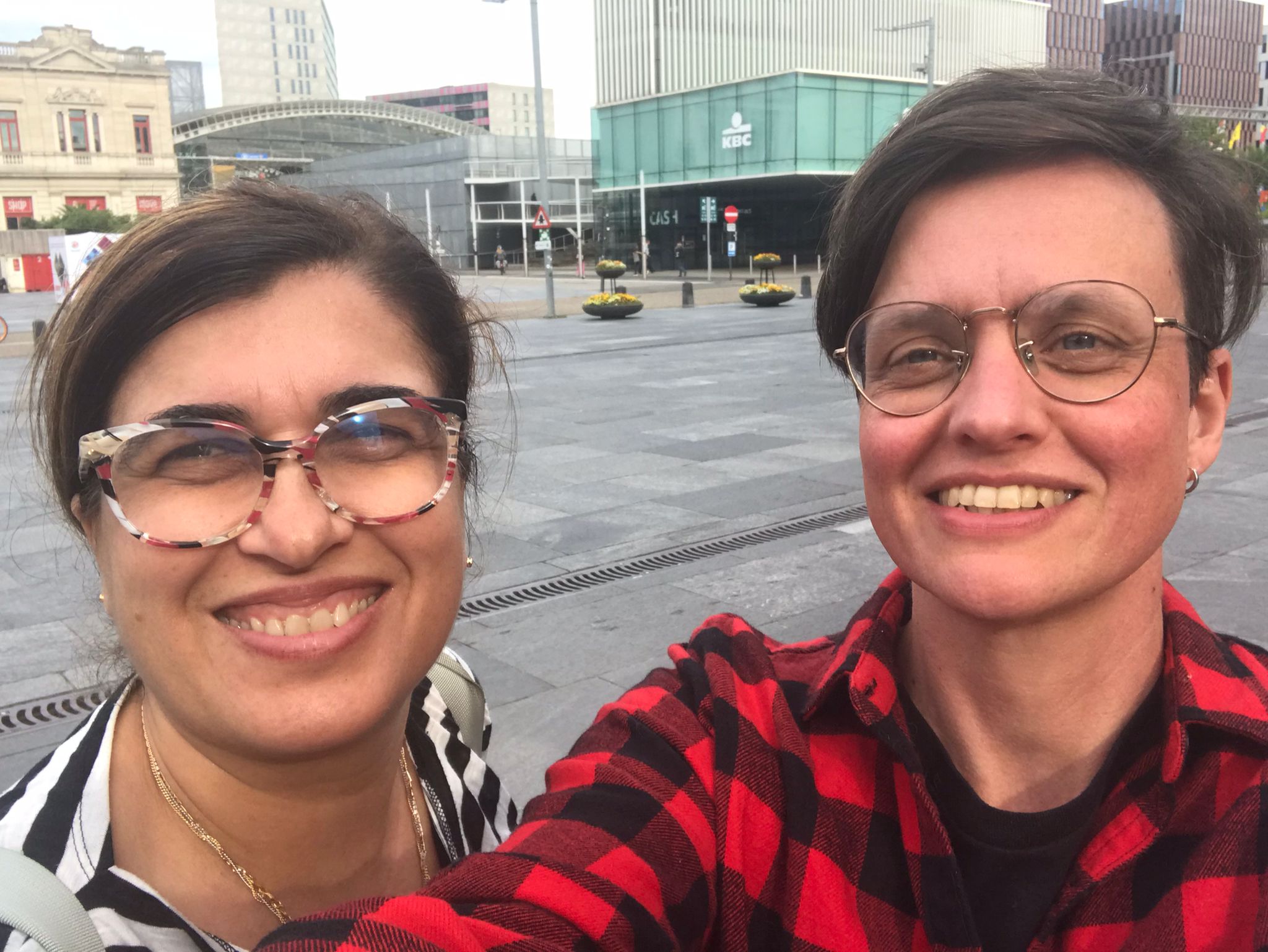 Studio Central and Eastern EuropeHeleen Touquet on the challenges to research sexual violence against menIn this podcast, Olivera Simic interviews Heleen Touquet, one of the few researchers studying sexual violence against men in armed conflicts. Touquet, an associate professor at the University of Antwerp and an affiliated researcher at KU Leuven, has focused her work on the Western Balkans. In the interview, she discusses the taboo surrounding sexual violence against men and why it is often more difficult for men to speak about it than for women. Simic explores the challenges of researching this sensitive topic and draws out Touquet's insights from her many years of investigation.
2024-10-0320 min
Studio Central and Eastern EuropeHeleen Touquet on the challenges to research sexual violence against menIn this podcast, Olivera Simic interviews Heleen Touquet, one of the few researchers studying sexual violence against men in armed conflicts. Touquet, an associate professor at the University of Antwerp and an affiliated researcher at KU Leuven, has focused her work on the Western Balkans. In the interview, she discusses the taboo surrounding sexual violence against men and why it is often more difficult for men to speak about it than for women. Simic explores the challenges of researching this sensitive topic and draws out Touquet's insights from her many years of investigation.
2024-10-0320 min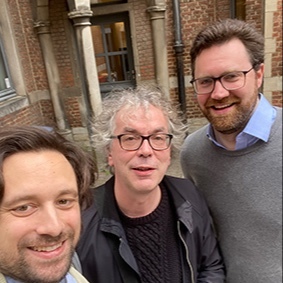 Studio Central and Eastern EuropeAntonio Chemotti and David Burn on the Joy of Medieval Music Research in Central Europe
In this episode of Studio FCEE, Paul Kolb of the Alamire Music Research Foundation interviews two of KU Leuven's top musicologists. David Burn, head of the Early Music Research Group at KU Leuven, and Assistant Professor Antonio Chemotti discuss their passion for medieval music in Central Europe. They share their excitement about studying music books, prints, and manuscripts that have long been considered marginal in Western academia due to their Central European origins. Highlighting how Central Europe had simultaneous access to both very modern and complex music from important European centers and its own fascinating traditions of simpler, yet mesmerizing...2024-06-2719 min
Studio Central and Eastern EuropeAntonio Chemotti and David Burn on the Joy of Medieval Music Research in Central Europe
In this episode of Studio FCEE, Paul Kolb of the Alamire Music Research Foundation interviews two of KU Leuven's top musicologists. David Burn, head of the Early Music Research Group at KU Leuven, and Assistant Professor Antonio Chemotti discuss their passion for medieval music in Central Europe. They share their excitement about studying music books, prints, and manuscripts that have long been considered marginal in Western academia due to their Central European origins. Highlighting how Central Europe had simultaneous access to both very modern and complex music from important European centers and its own fascinating traditions of simpler, yet mesmerizing...2024-06-2719 min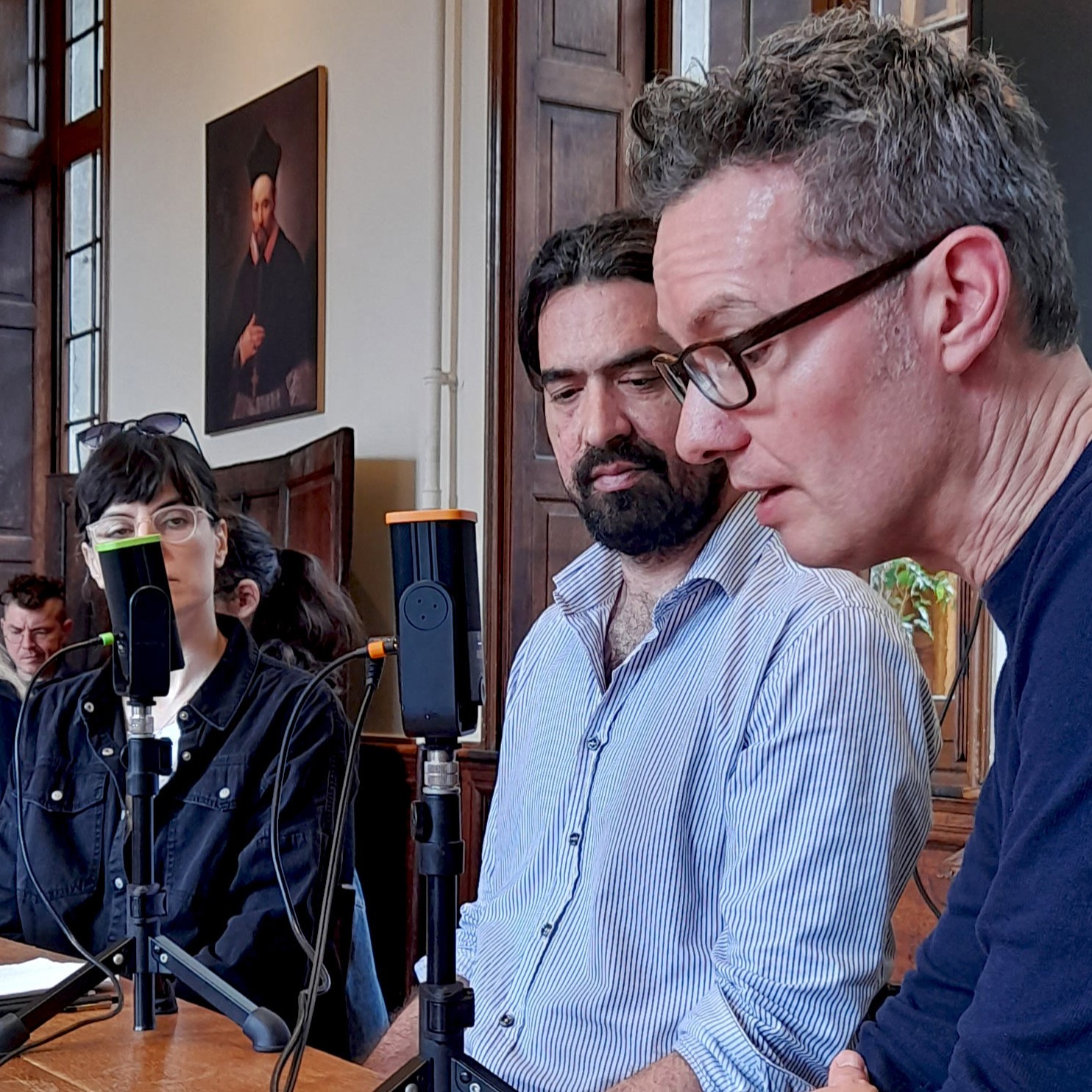 Studio Central and Eastern EuropeSabina Tanovic and Ilir Gashi on commemorations and post-war memories in the former YugoslaviaIn this podcast, Peter Vermeersch of KU Leuven talks with architect and scholar Sabina Tanović and awarded activist and storyteller Ilir Gashi how the painful memories of the 1990s Yugoslav wars are used in contemporary commemorations, what are their meanings and uses in today's Balkan societies.
Dr. Sabina Tanović is an architect and researcher specializing in memorial projects that address traumatic histories. She earned her degree from the University of Sarajevo and holds advanced degrees from Delft University of Technology, where she also teaches. Her research focuses on the creation of modern memorials using participatory methods, environmental psychology, an...2024-06-2448 min
Studio Central and Eastern EuropeSabina Tanovic and Ilir Gashi on commemorations and post-war memories in the former YugoslaviaIn this podcast, Peter Vermeersch of KU Leuven talks with architect and scholar Sabina Tanović and awarded activist and storyteller Ilir Gashi how the painful memories of the 1990s Yugoslav wars are used in contemporary commemorations, what are their meanings and uses in today's Balkan societies.
Dr. Sabina Tanović is an architect and researcher specializing in memorial projects that address traumatic histories. She earned her degree from the University of Sarajevo and holds advanced degrees from Delft University of Technology, where she also teaches. Her research focuses on the creation of modern memorials using participatory methods, environmental psychology, an...2024-06-2448 min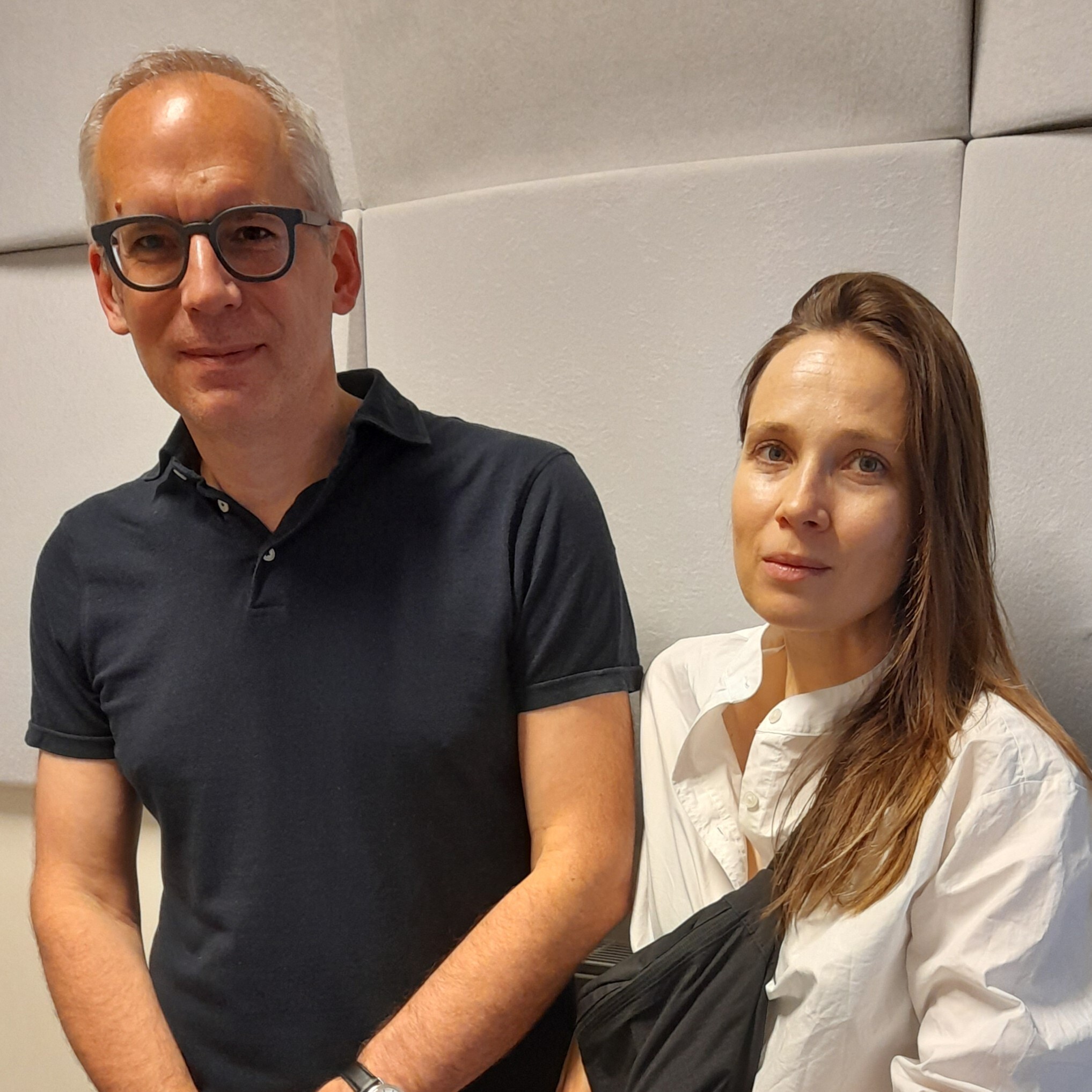 Studio Central and Eastern EuropeAnna Karpenko on how avant-garde artists who defied state borders are subjected to appropriation attemptsIn this interview, KU Leuven history professor Martin Kohlrausch speaks with independent curator Anna Karpenko about the avant-garde movement between the East and the West. They discuss how avant-garde artists and architects endeavored to transcend borders and how their legacy is now subject to appropriation attempts, particularly in the post-Soviet context of the former USSR.
Anna Karpenko (b. 1985) is a curator and author. She studied philosophy at Belarusian State University (Minsk), visual studies at European Humanities University (Vilnius), and curatorial studies at the Academy of Fine Arts (Leipzig). Karpenko is a member of the International Association of...2024-06-0720 min
Studio Central and Eastern EuropeAnna Karpenko on how avant-garde artists who defied state borders are subjected to appropriation attemptsIn this interview, KU Leuven history professor Martin Kohlrausch speaks with independent curator Anna Karpenko about the avant-garde movement between the East and the West. They discuss how avant-garde artists and architects endeavored to transcend borders and how their legacy is now subject to appropriation attempts, particularly in the post-Soviet context of the former USSR.
Anna Karpenko (b. 1985) is a curator and author. She studied philosophy at Belarusian State University (Minsk), visual studies at European Humanities University (Vilnius), and curatorial studies at the Academy of Fine Arts (Leipzig). Karpenko is a member of the International Association of...2024-06-0720 min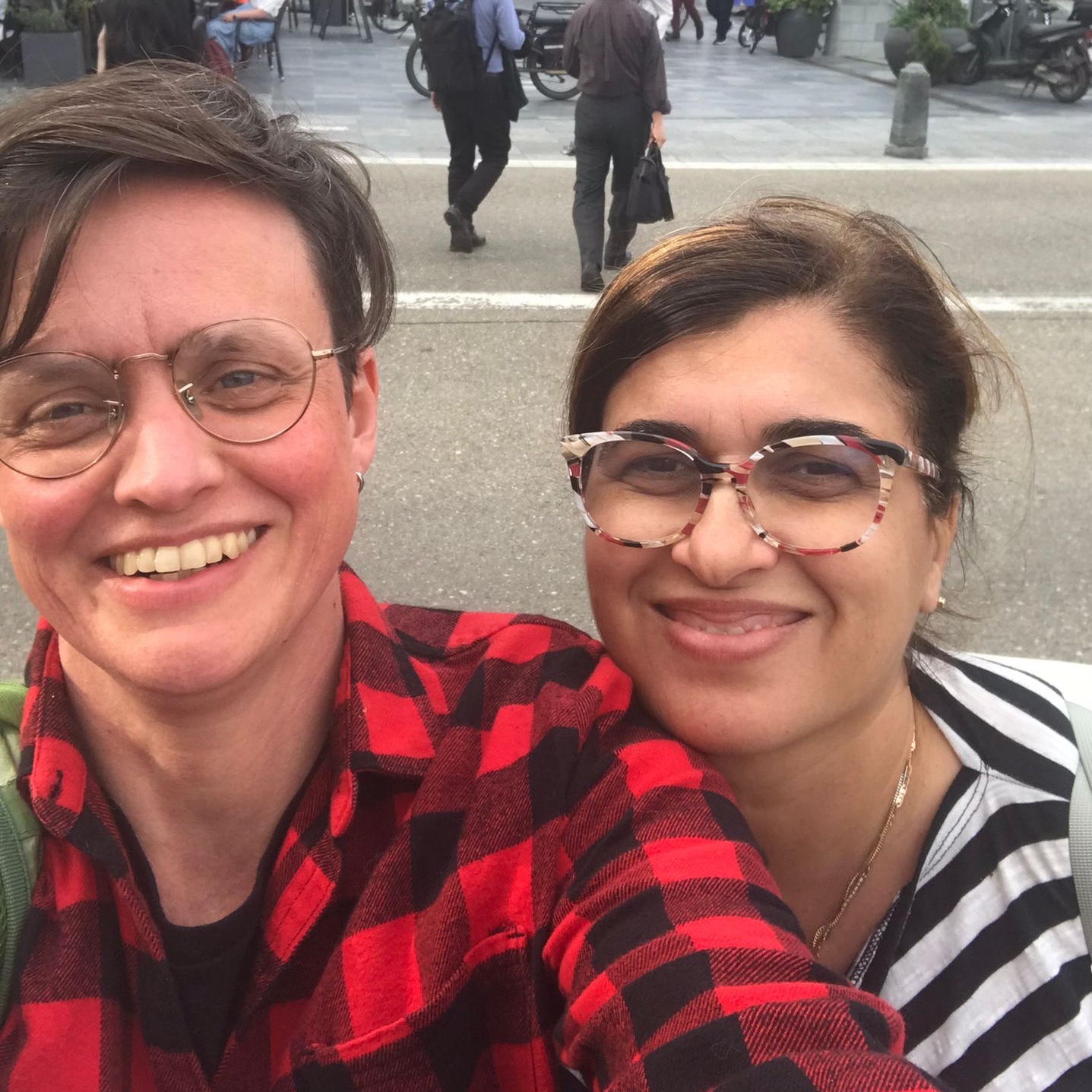 Studio Central and Eastern EuropeOlivera Simic on the experience of interviewing war criminals and victimsOlivera Simic, an associate professor at Griffith University in Australia, discusses war criminals in the Balkans who escape justice and live undisturbed lives in neighboring countries. She also delves into her decision to write an entire book about Biljana Plavšić, the former President of Republika Srpska, who was later convicted of crimes against humanity. The interview is hosted by Heleen Toquet, a fellow at KU Leuven and a visiting professor at the University of Antwerp.
2024-05-249h 00
Studio Central and Eastern EuropeOlivera Simic on the experience of interviewing war criminals and victimsOlivera Simic, an associate professor at Griffith University in Australia, discusses war criminals in the Balkans who escape justice and live undisturbed lives in neighboring countries. She also delves into her decision to write an entire book about Biljana Plavšić, the former President of Republika Srpska, who was later convicted of crimes against humanity. The interview is hosted by Heleen Toquet, a fellow at KU Leuven and a visiting professor at the University of Antwerp.
2024-05-249h 00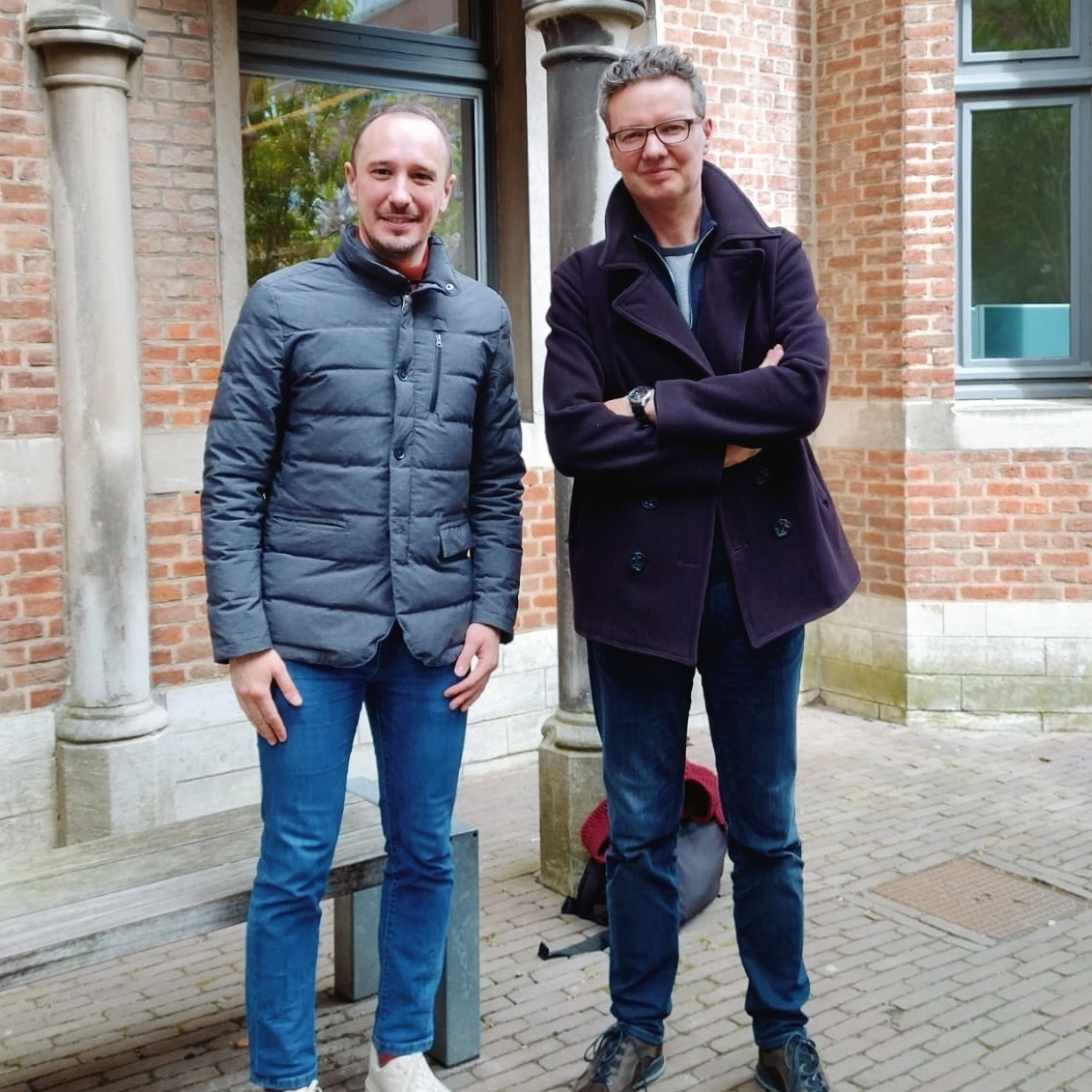 Studio Central and Eastern EuropeJan Grzymski on voting as an act of asserting identity in Poland, and on his strategic game How to Win BrexitIn this episode of Studio FCEE, Polish political scientist Jan Grzymski offers an insightful analysis of Poland's post-election landscape. Following the defeat of the United Right alliance, a coalition of three parties, led by Donald Tusk, assumed power. Grzymski suggests that the previous government's conservative reforms polarized the electorate, turning the elections into a battleground of identities and explaining the significant turnover in October 2023. Interviewed by political scientist Peter Vermeersch at KU Leuven, Grzymski delves into the ethical quandaries inherited by the new government. In this podcast, he also tells the story of his growingly popular strategic game How...2024-05-0824 min
Studio Central and Eastern EuropeJan Grzymski on voting as an act of asserting identity in Poland, and on his strategic game How to Win BrexitIn this episode of Studio FCEE, Polish political scientist Jan Grzymski offers an insightful analysis of Poland's post-election landscape. Following the defeat of the United Right alliance, a coalition of three parties, led by Donald Tusk, assumed power. Grzymski suggests that the previous government's conservative reforms polarized the electorate, turning the elections into a battleground of identities and explaining the significant turnover in October 2023. Interviewed by political scientist Peter Vermeersch at KU Leuven, Grzymski delves into the ethical quandaries inherited by the new government. In this podcast, he also tells the story of his growingly popular strategic game How...2024-05-0824 min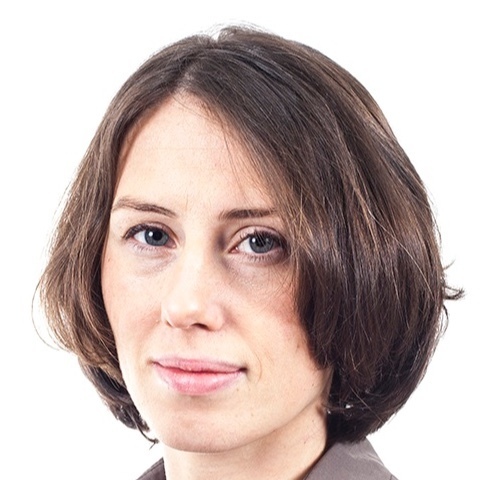 Studio Central and Eastern EuropeAnna Matyska on the Ukrainian diaspora in PolandAnthropologist Anna Matyska, a KU Leuven researcher who recently joined the team at Warsaw University, delves into her research on Ukrainian migrants in Poland. Her focus lies in understanding how war has reshaped the emotional and daily lives of long-term Ukrainian migrants in Poland and their ties to their homeland. Her work examines the emotional dimensions of their experiences, and in this interview she addresses the complexities of interviewing individuals who have endured recent emotional turmoil. She also speaks of the impact of the 1.2 million-strong Ukrainian migrant community on Polish society. Matyska discusses her work with Maryna Shevtsova, a senior...2024-04-159h 58
Studio Central and Eastern EuropeAnna Matyska on the Ukrainian diaspora in PolandAnthropologist Anna Matyska, a KU Leuven researcher who recently joined the team at Warsaw University, delves into her research on Ukrainian migrants in Poland. Her focus lies in understanding how war has reshaped the emotional and daily lives of long-term Ukrainian migrants in Poland and their ties to their homeland. Her work examines the emotional dimensions of their experiences, and in this interview she addresses the complexities of interviewing individuals who have endured recent emotional turmoil. She also speaks of the impact of the 1.2 million-strong Ukrainian migrant community on Polish society. Matyska discusses her work with Maryna Shevtsova, a senior...2024-04-159h 58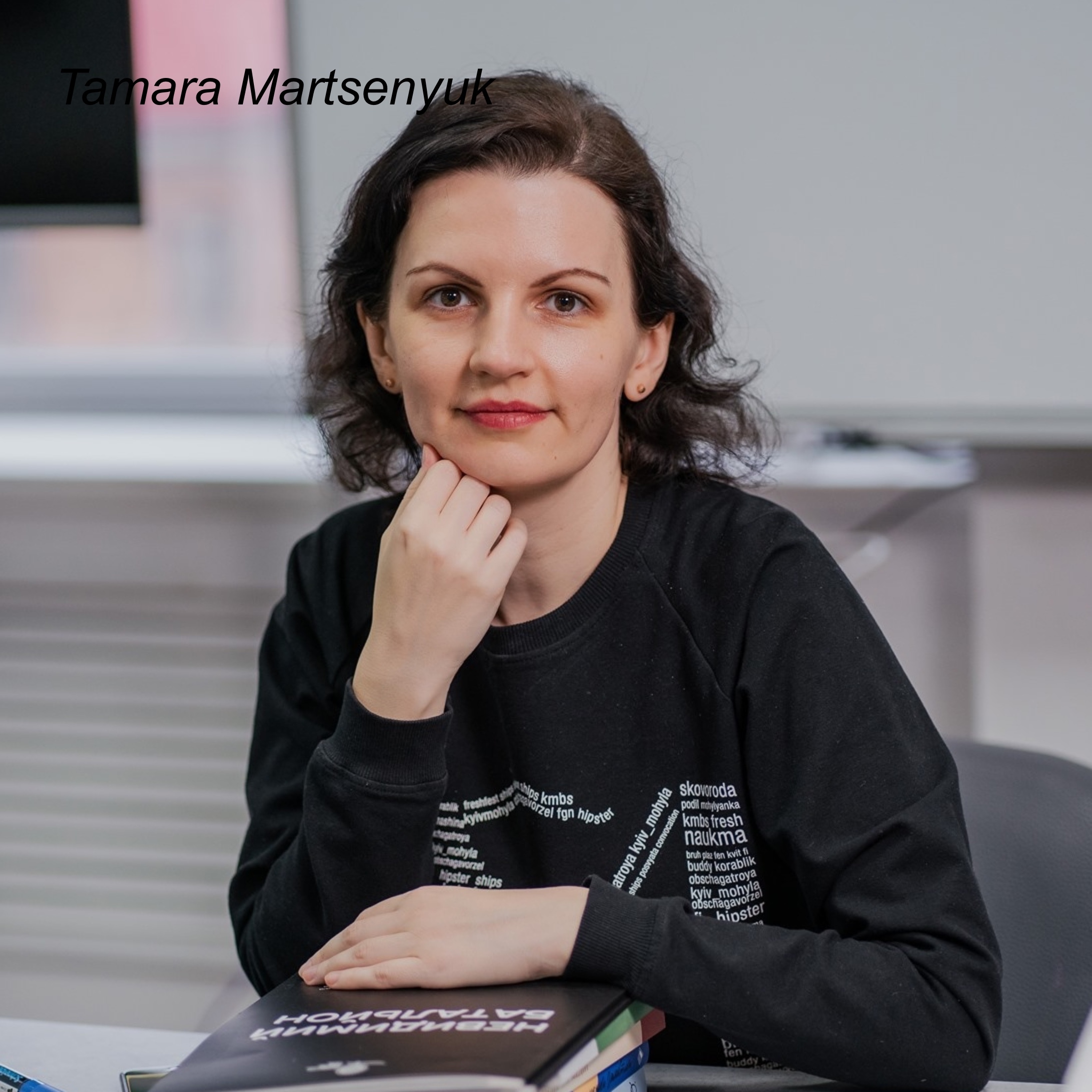 Studio Central and Eastern EuropeHear Our Voices: Tamara Martsenyuk on gender roles of men and alternative masculinity in UkraineSociologist Tamara Martsenyuk speaks of how the war in Ukraine reshaped the gender roles of men. She dwells on the new forms of alternative masculinity, observed in the country. This study is featured in a chapter within the recently published edited volume "Feminist Perspectives on Russia's War in Ukraine: Hear Our Voices" (Lexington Books, 2024). Her presentation was recorded during the book's unveiling at the Forum on Central and Eastern Europe at KU Leuven on March 26, 2024.
2024-04-0210h 00
Studio Central and Eastern EuropeHear Our Voices: Tamara Martsenyuk on gender roles of men and alternative masculinity in UkraineSociologist Tamara Martsenyuk speaks of how the war in Ukraine reshaped the gender roles of men. She dwells on the new forms of alternative masculinity, observed in the country. This study is featured in a chapter within the recently published edited volume "Feminist Perspectives on Russia's War in Ukraine: Hear Our Voices" (Lexington Books, 2024). Her presentation was recorded during the book's unveiling at the Forum on Central and Eastern Europe at KU Leuven on March 26, 2024.
2024-04-0210h 00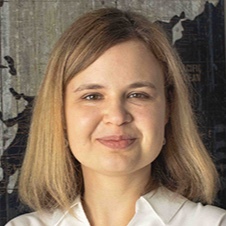 Studio Central and Eastern EuropeHear Our Voices: Katsiaryna Lozka on the female activism in support of Ukraine in BelarusKatsiaryna Lozka, a PhD candidate in Political Science at Ghent University, presents her research on pro-Ukrainian female activism in Belarus. This study is featured in a chapter within the recently published edited volume "Feminist Perspectives on Russia's War in Ukraine: Hear Our Voices" (Lexington Books, 2024). Her presentation was recorded during the book's unveiling at the Forum on Central and Eastern Europe at KU Leuven on March 26, 2024.
2024-04-021h 15
Studio Central and Eastern EuropeHear Our Voices: Katsiaryna Lozka on the female activism in support of Ukraine in BelarusKatsiaryna Lozka, a PhD candidate in Political Science at Ghent University, presents her research on pro-Ukrainian female activism in Belarus. This study is featured in a chapter within the recently published edited volume "Feminist Perspectives on Russia's War in Ukraine: Hear Our Voices" (Lexington Books, 2024). Her presentation was recorded during the book's unveiling at the Forum on Central and Eastern Europe at KU Leuven on March 26, 2024.
2024-04-021h 15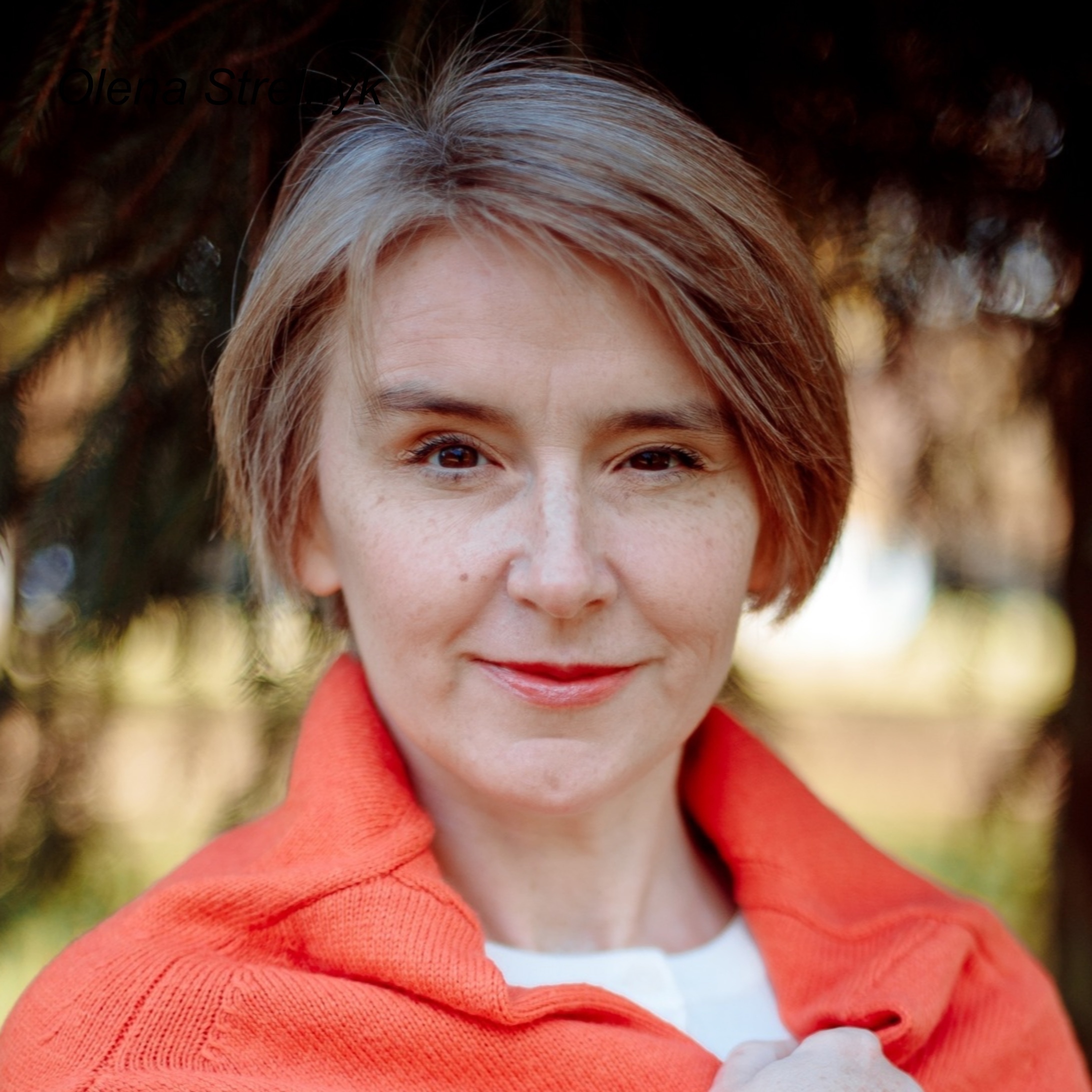 Studio Central and Eastern EuropeHear Our Voices: Olena Strelnyk on how war in Ukraine changes the social ideas of femininity
Sociologist Olena Strelnyk shares insights from her research on the influence of the Ukrainian conflict on the societal construct of femininity. This study is featured in a chapter within the recently published edited volume "Feminist Perspectives on Russia's War in Ukraine: Hear Our Voices" (Lexington Books, 2024). Her presentation was recorded during the book's presentation at the Forum on Central and Eastern Europe at KU Leuven on March 26, 2024.
2024-04-021h 23
Studio Central and Eastern EuropeHear Our Voices: Olena Strelnyk on how war in Ukraine changes the social ideas of femininity
Sociologist Olena Strelnyk shares insights from her research on the influence of the Ukrainian conflict on the societal construct of femininity. This study is featured in a chapter within the recently published edited volume "Feminist Perspectives on Russia's War in Ukraine: Hear Our Voices" (Lexington Books, 2024). Her presentation was recorded during the book's presentation at the Forum on Central and Eastern Europe at KU Leuven on March 26, 2024.
2024-04-021h 23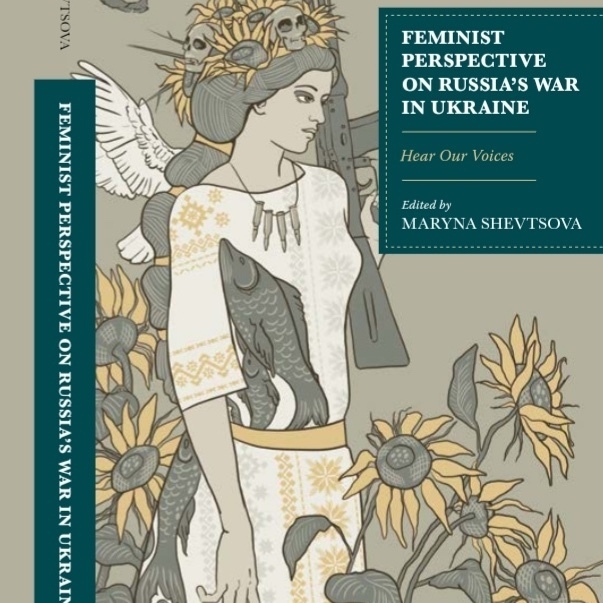 Studio Central and Eastern EuropeMaryna Shevtsova introduces Feminist Perspective on Russia's War in Ukraine: Hear Our VoicesMaryna Shevtsova, senior FWO researcher at KU Leuven, introduces the edited volume Feminist Perspective on Russia's War in Ukraine: Hear Our Voices, which was published in February 2024, and three of the authors. The recording was made during the 26 March event at KU Leuven.
2024-04-0210h 21
Studio Central and Eastern EuropeMaryna Shevtsova introduces Feminist Perspective on Russia's War in Ukraine: Hear Our VoicesMaryna Shevtsova, senior FWO researcher at KU Leuven, introduces the edited volume Feminist Perspective on Russia's War in Ukraine: Hear Our Voices, which was published in February 2024, and three of the authors. The recording was made during the 26 March event at KU Leuven.
2024-04-0210h 21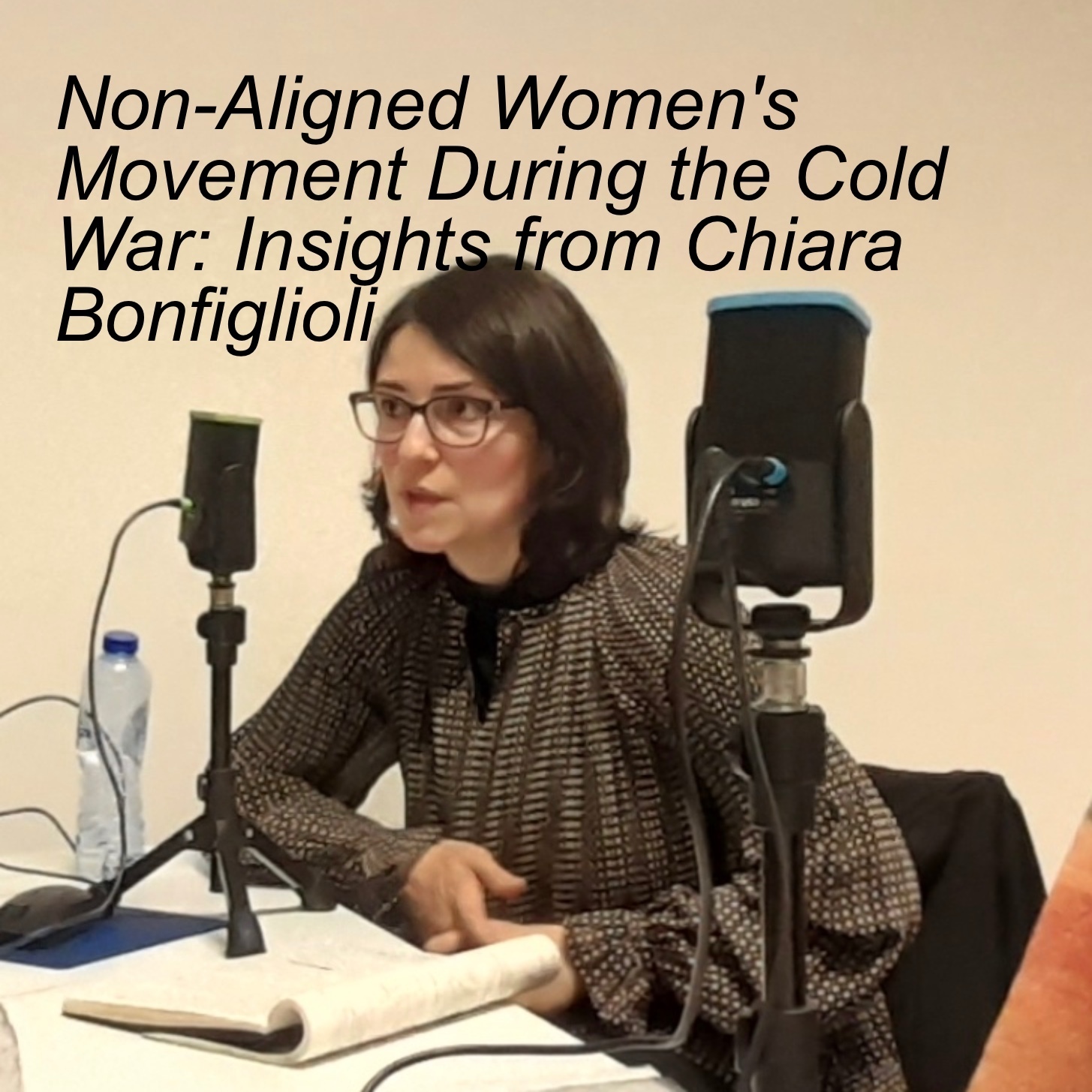 Studio Central and Eastern EuropeChiara Bonfiglioli on women's activism and the Non-Aligned Movement during the Cold War
In this podcast, Chiara Bonfiglioli, associate professor in contemporary history at Ca’ Foscari University of Venice, speaks of the women's movement in non-aligned countries during the Cold War. Interviewed by Ana Devic, a Marie Curie fellow at KU Leuven, Bonfiglioli shares narratives of cross-border friendship and vibrant energy, of resilience and camaraderie, which she found in the archives and biographical writings of female activists in South-East Europe and Italy. The podcast is an episode of the Studio FCEE series, produced by the Forum on Central and Eastern Europe at KU Leuven.
2024-02-279h 59
Studio Central and Eastern EuropeChiara Bonfiglioli on women's activism and the Non-Aligned Movement during the Cold War
In this podcast, Chiara Bonfiglioli, associate professor in contemporary history at Ca’ Foscari University of Venice, speaks of the women's movement in non-aligned countries during the Cold War. Interviewed by Ana Devic, a Marie Curie fellow at KU Leuven, Bonfiglioli shares narratives of cross-border friendship and vibrant energy, of resilience and camaraderie, which she found in the archives and biographical writings of female activists in South-East Europe and Italy. The podcast is an episode of the Studio FCEE series, produced by the Forum on Central and Eastern Europe at KU Leuven.
2024-02-279h 59 Studio Central and Eastern EuropeDebate: Art and War. Peter Vermeersch interviews Bjorn Geldhof and Kateryna BotanovaIn this podcast, Peter Vermeersch from KU Leuven engages in a discussion with Bjorn Geldhof, the artistic director of the PinchukArtCentre in Kiev, and Kateryna Botanova, a prominent Ukrainian art critic. They explore how war both halted artistic expression and sparked a newfound drive to create art. The speakers pointed out that in Ukraine, culture has become intricately linked to the survival of the nation, identity, and individuals.
2023-12-205h 30
Studio Central and Eastern EuropeDebate: Art and War. Peter Vermeersch interviews Bjorn Geldhof and Kateryna BotanovaIn this podcast, Peter Vermeersch from KU Leuven engages in a discussion with Bjorn Geldhof, the artistic director of the PinchukArtCentre in Kiev, and Kateryna Botanova, a prominent Ukrainian art critic. They explore how war both halted artistic expression and sparked a newfound drive to create art. The speakers pointed out that in Ukraine, culture has become intricately linked to the survival of the nation, identity, and individuals.
2023-12-205h 30